Fringe (and Festival!) Friday 2023: Week Three
Week three of Brighton Fringe and Festival!
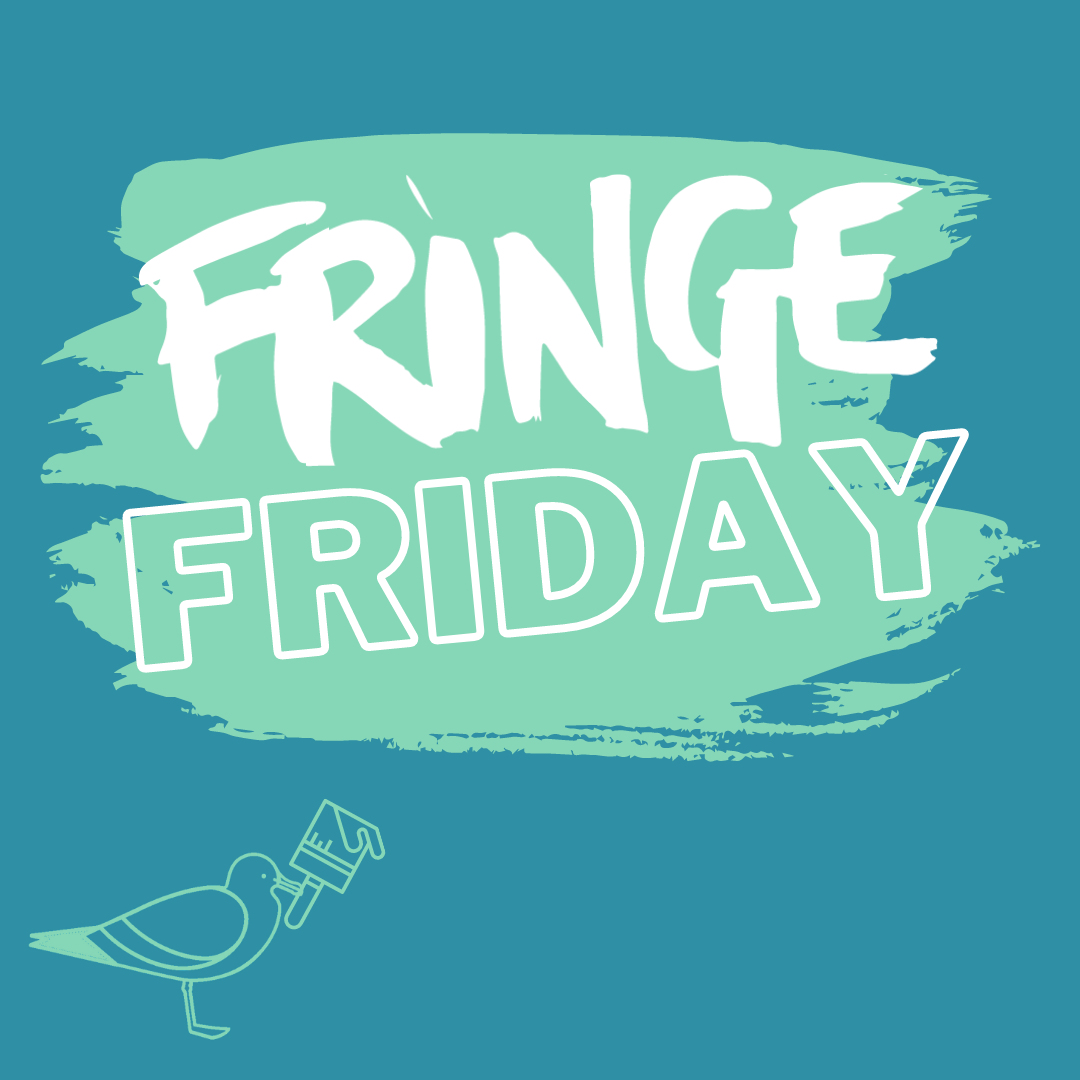
Week three! How are we all feeling? Team Seagull don't have Covid, so we're doing much better than we were last year. Some excellent and varied shows this week, including Galatea, Billie Gold Presents: Praise Kink, Joe Wells: King of the Autistics, and much more.
If you're free today at lunchtime, why not come along to our party in The Lanes? We'd love to see you there!
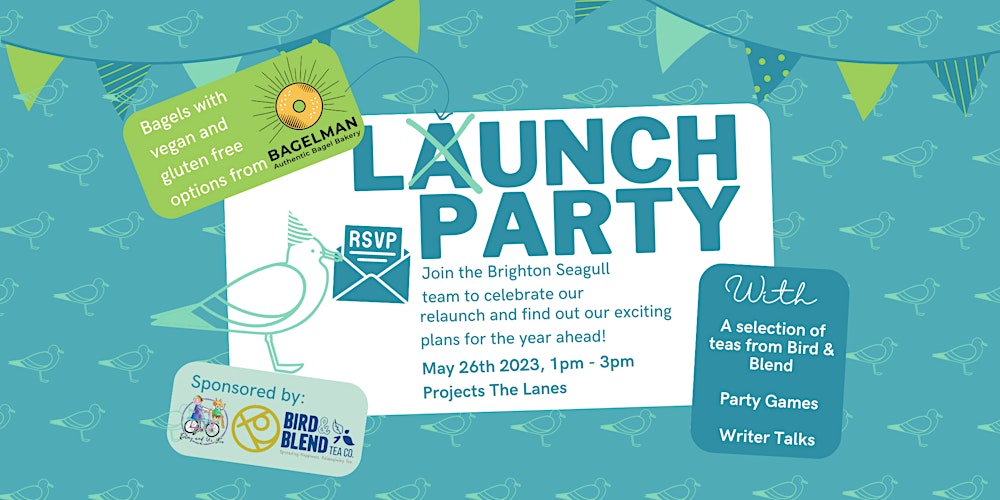
Joe Wells: King of the Autistics
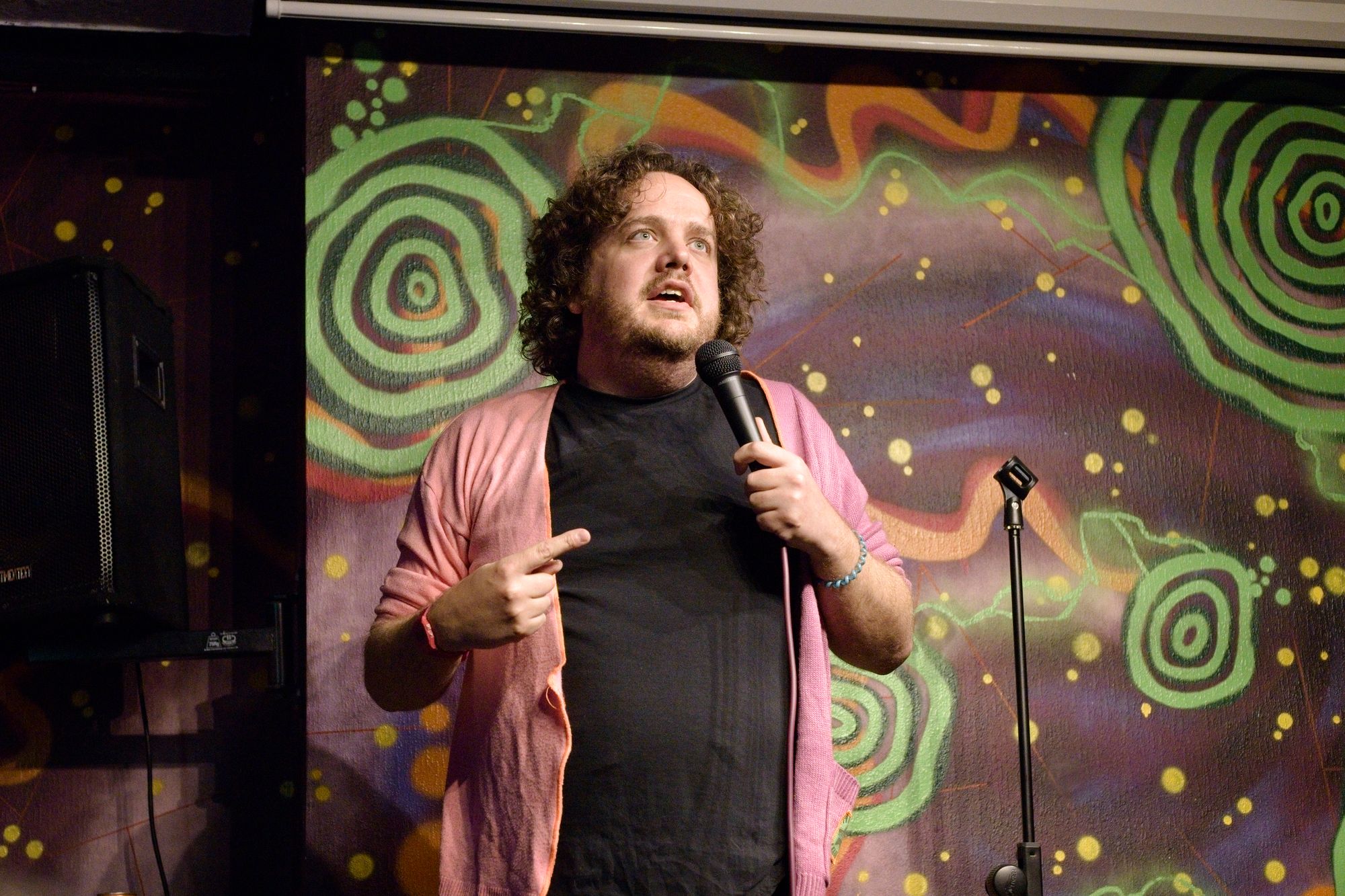
Joe Wells is always a pleasure to see, even at a show that he admits is 'more work than progress'. Inviting the audience to do what they need to feel comfortable made the show instantly welcoming, although he was quick to clarify for the non-initiated that 'stimming is not wanking'.
It turns out that his show wasn't one that needed every content warning the Fringe website had available (Wells hadn't finished the show at the time of submitting it). Instead, it was an interesting look into his life as an autistic person ("I'm autistic, not a person with autism, in the same way that we have baristas, not people with theatre degrees") and the difficulties around being expected to be the unelected spokesperson for autistic people.
There was plenty I could relate to (baked beans should always be in a separate bowl (or at least have a barrier)), and I especially found comfort in his stories about being an autistic person dating someone with ADHD. Although, I'm more likely to walk into a field of cows than my ADHD-partner is. I'm very much looking forward to seeing this show polished up, and I cannot recommend enough his show at Komedia in September that we reviewed here last year (tickets).
CM Kavanagh
I was kinda the bad guy
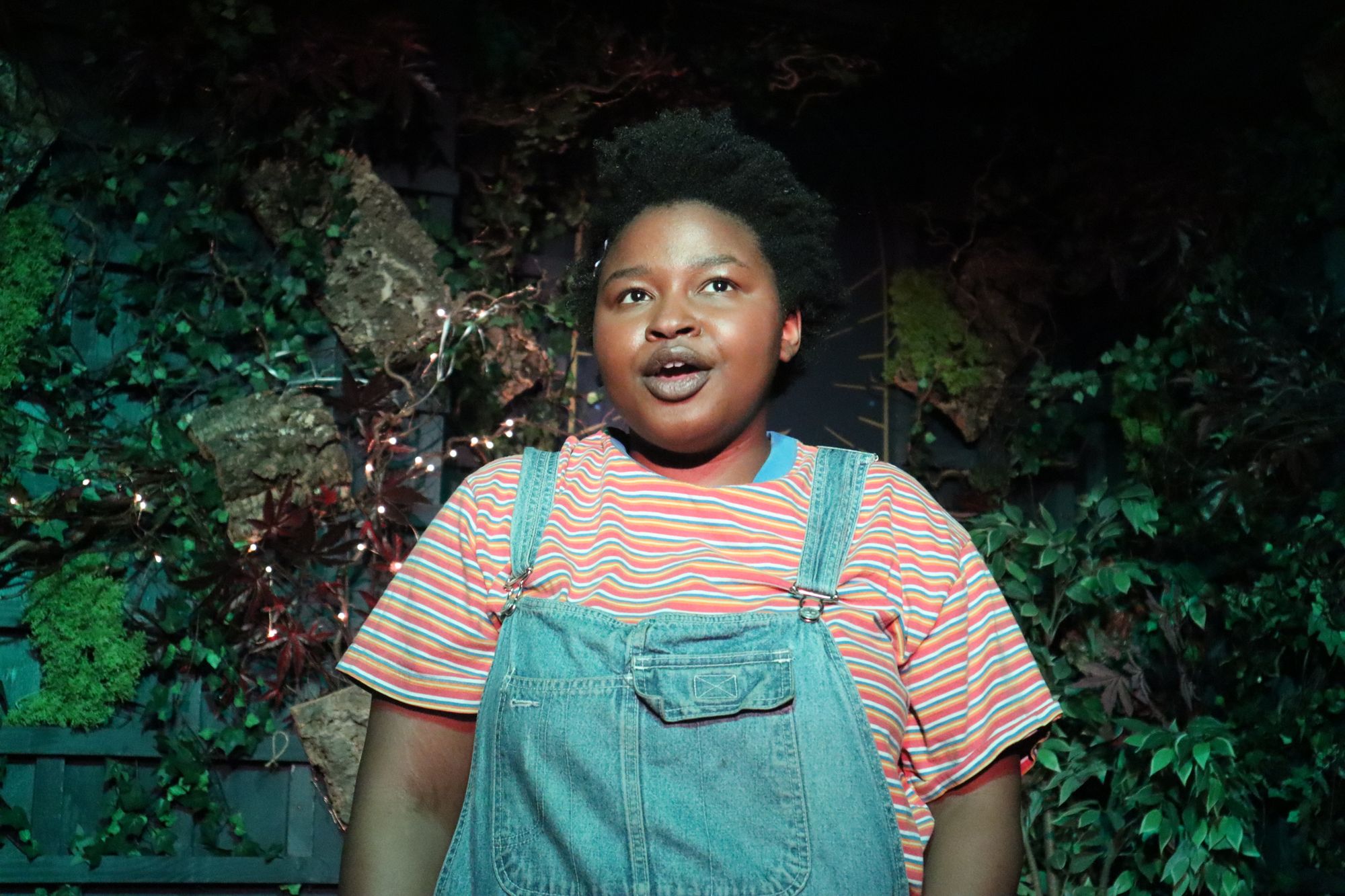
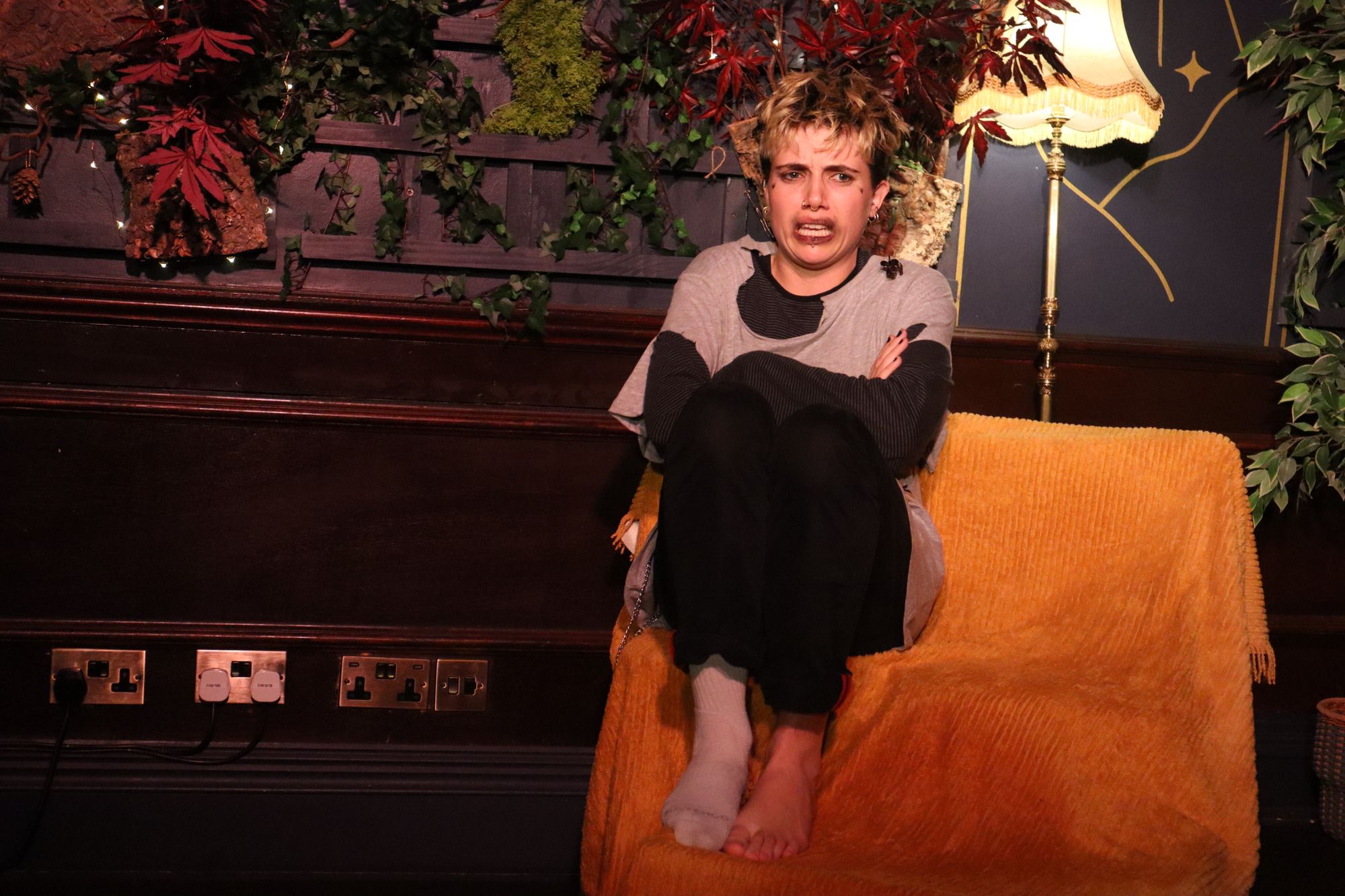
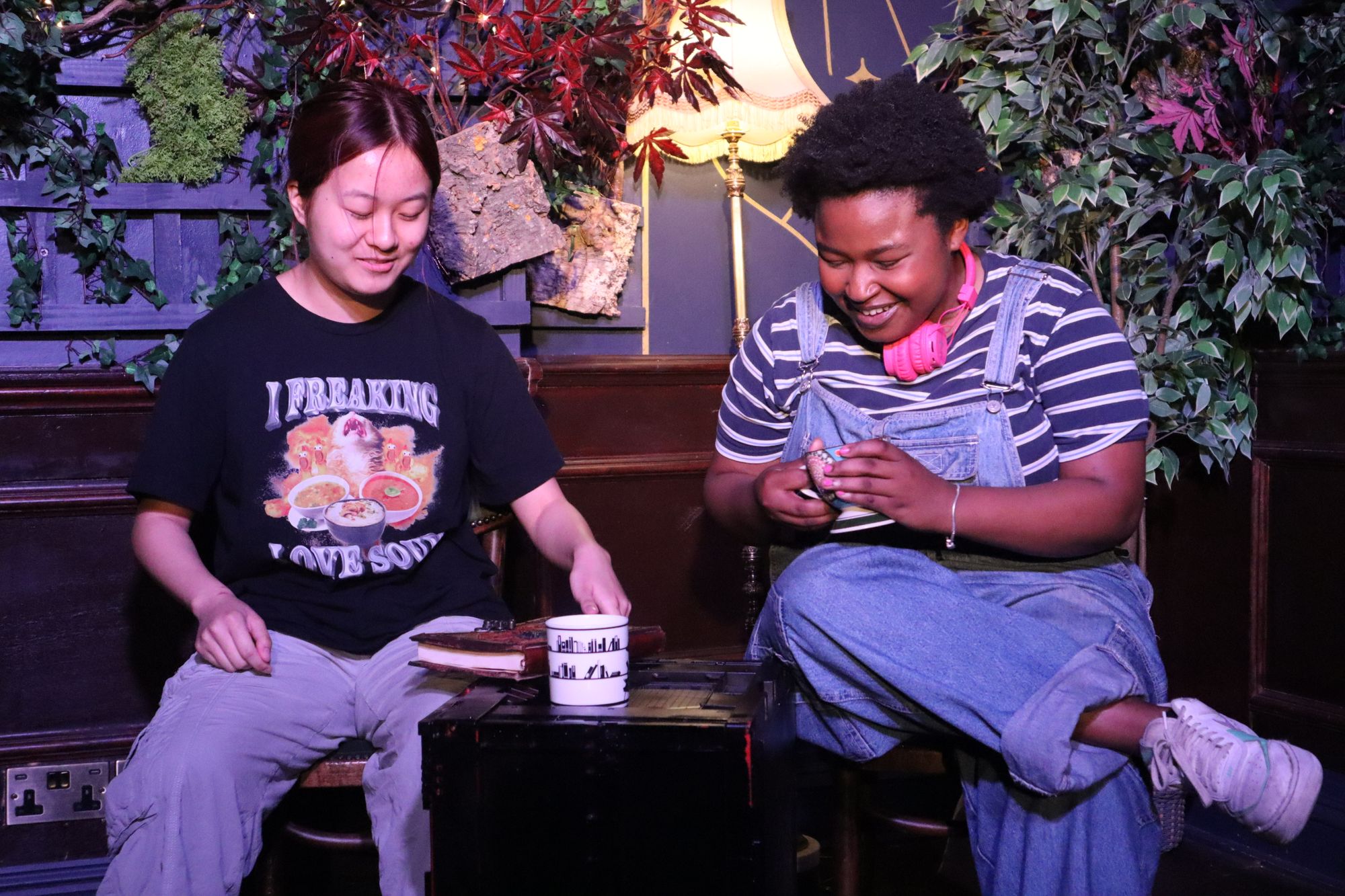
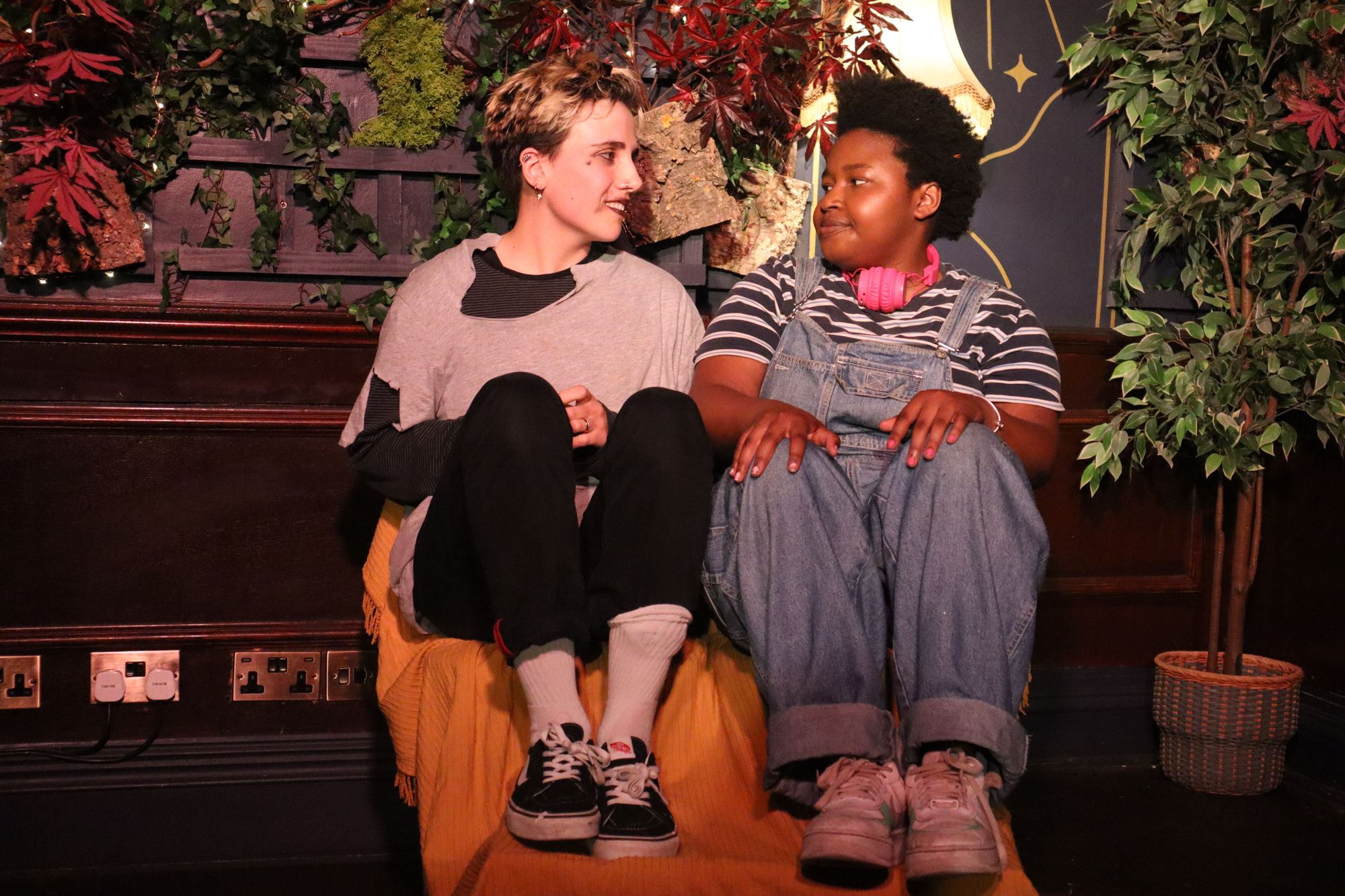
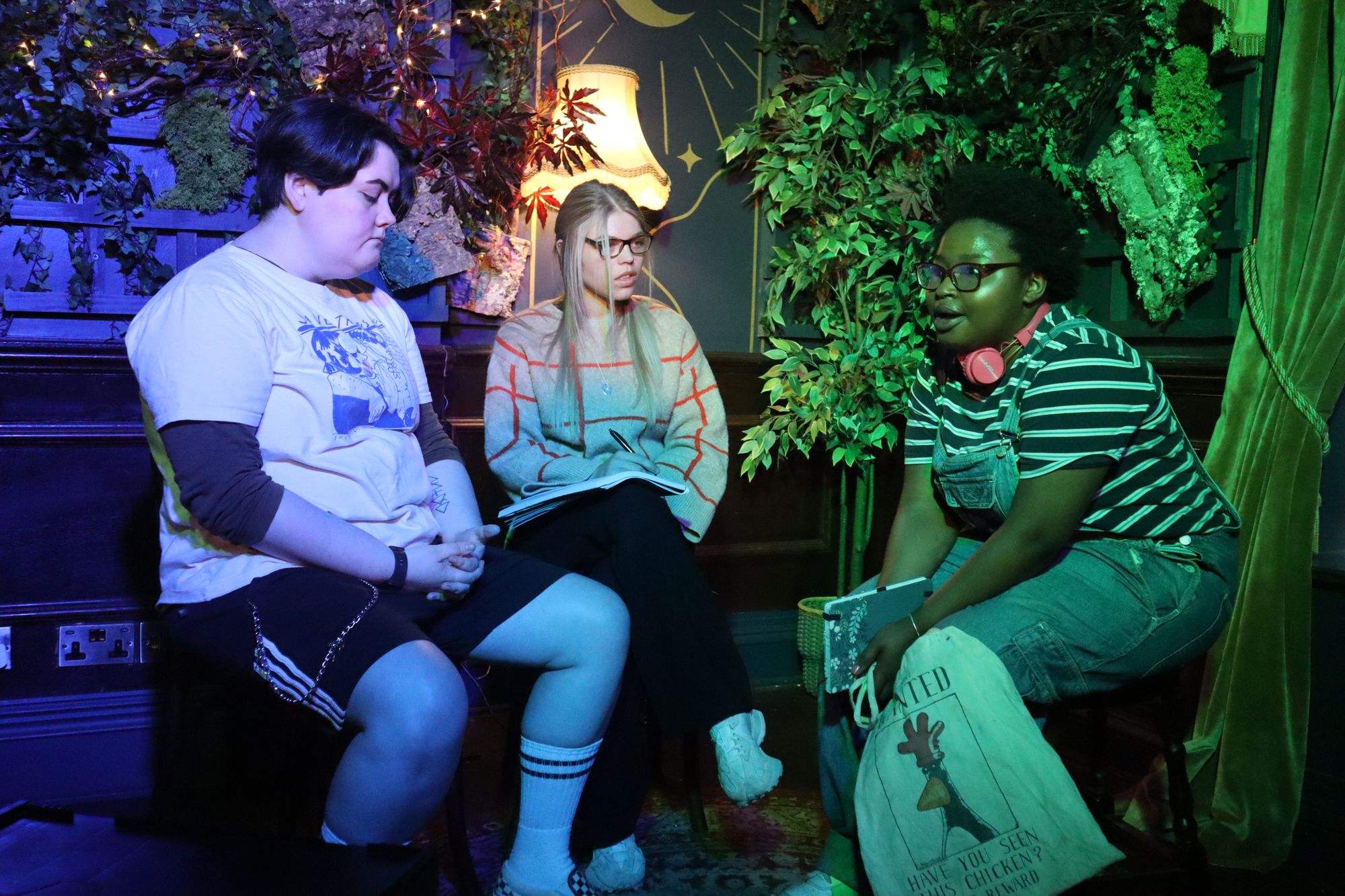
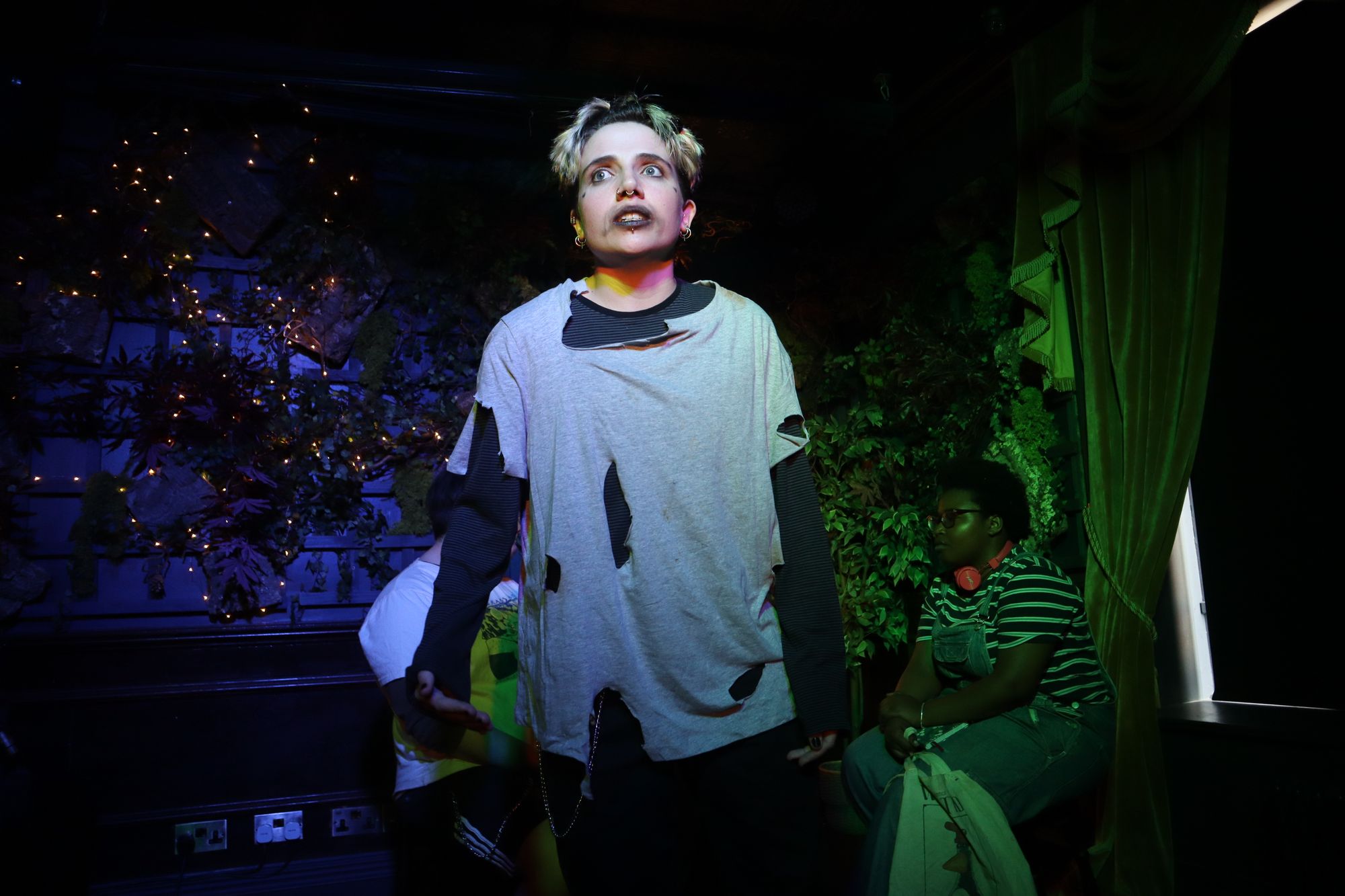
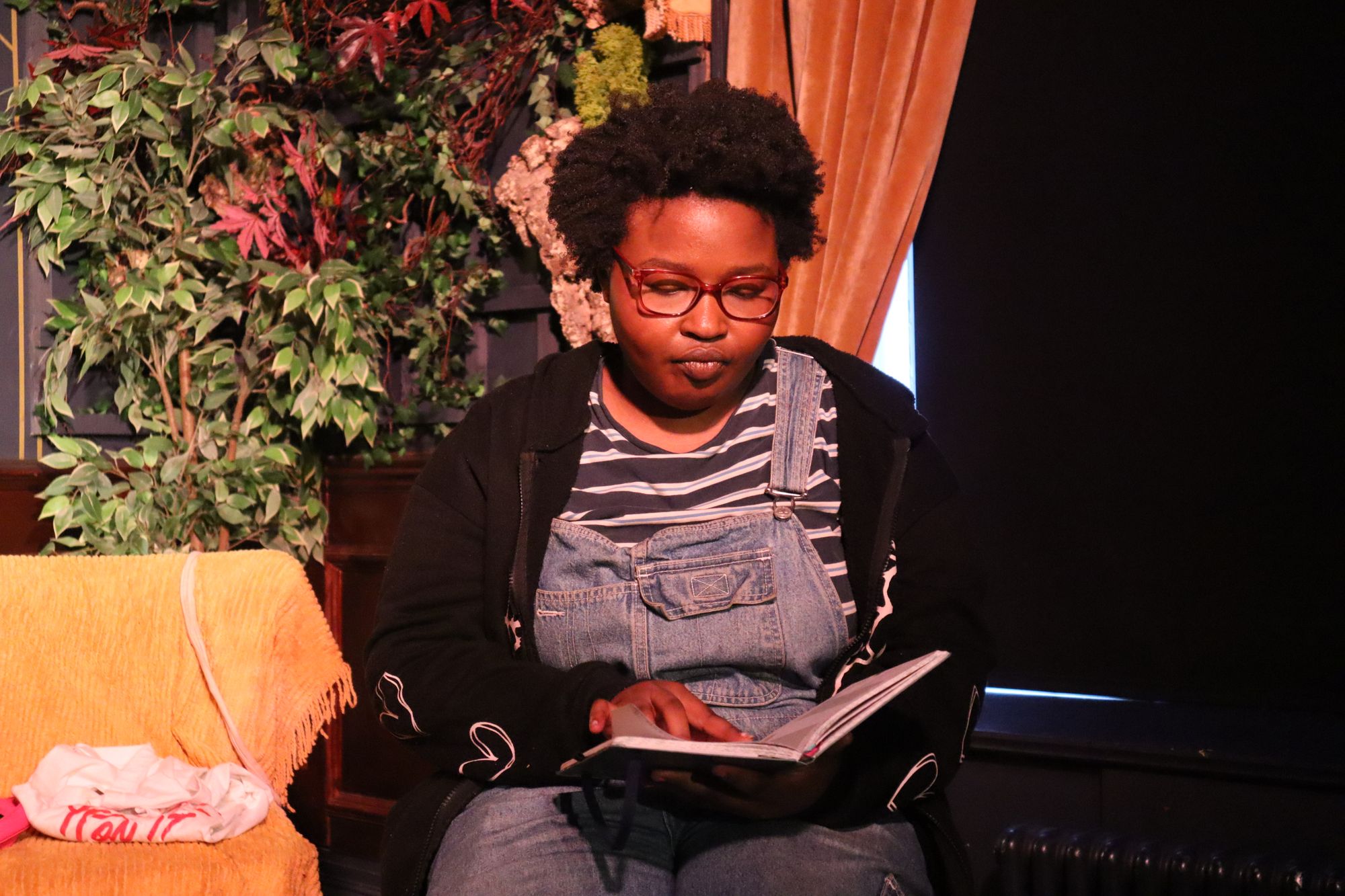
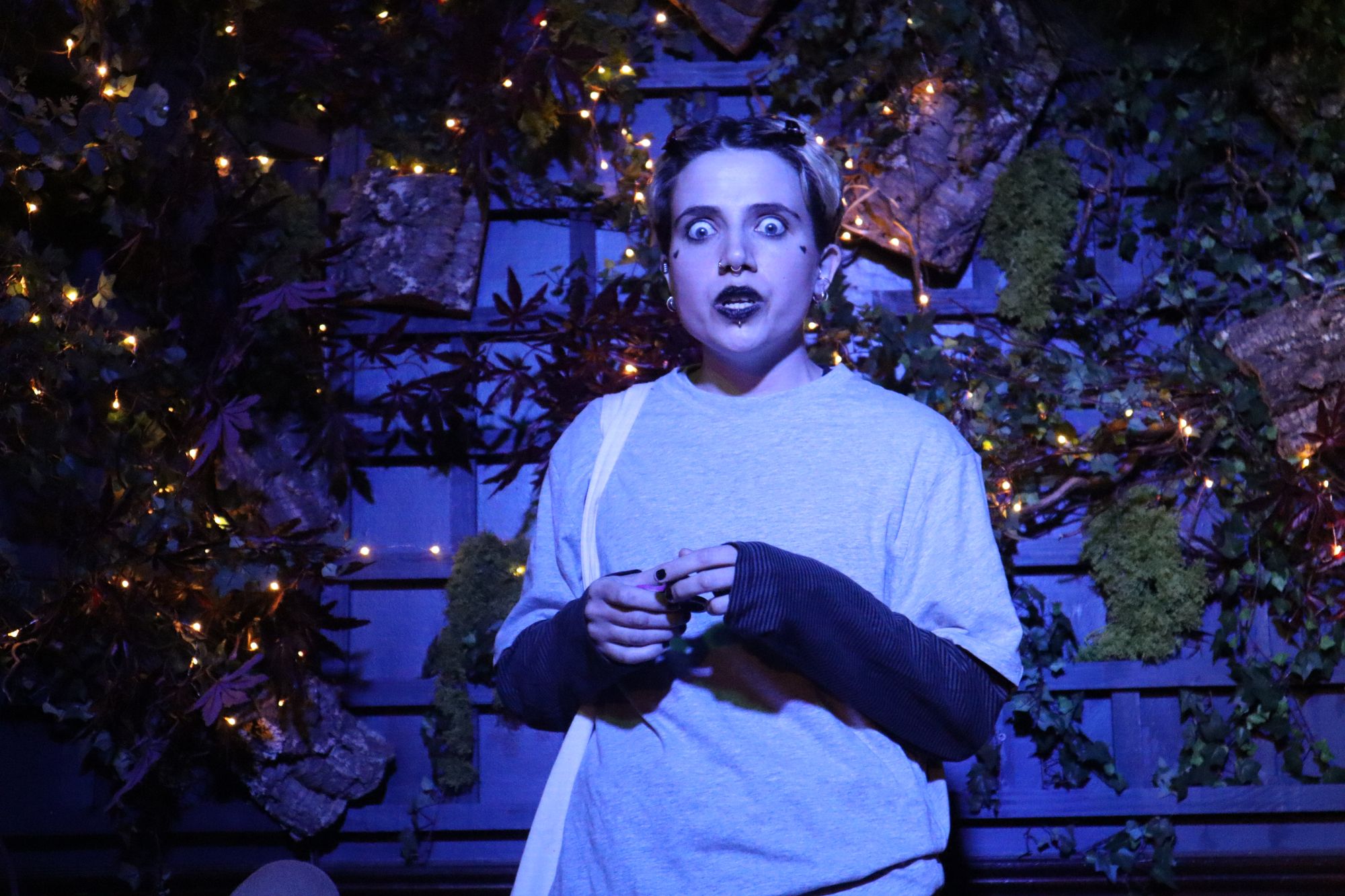
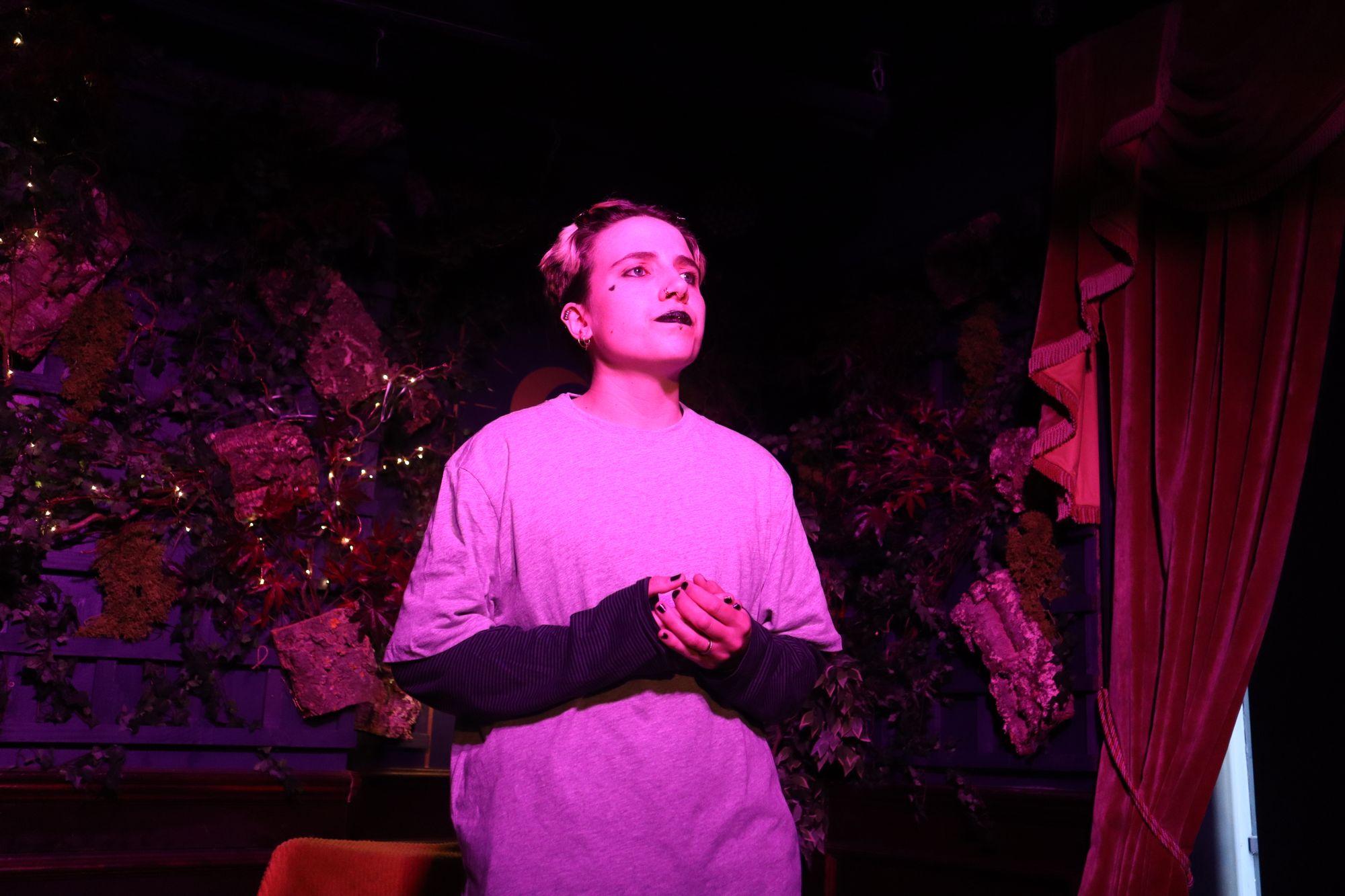
Source: The Brighton Seagull
You see the problem with the quote is that ‘friends don’t ignore the fence, friends help build it back up’. You can’t see your friend suffering and do nothing about it. It’s your duty to help them out. But then I guess thats what makes us different from most friends. We’re basically one soul in two different bodies.
Jasmine-Rose Johnson's debut play I was kinda the bad guy is one of the best plays I've ever seen during the Fringe. It follows Diane, a young girl coming to terms with the disappearance of her mum, the friendship she has with Nadine, and how Diane seeking help for her mental health impacts them both.
I knew going in that there would be something more to it than them just being friends, and was so intrigued by the premise: "What would you do if you found out you were the villain in someone else’s story? What lengths would you go through to keep yourself from getting written out of the script? How far would you go?" I love an unreliable narrator, and a fourth wall break, so it's like this was tailor-made for me.
The way the co-dependent Nadine was portrayed was excellent, I was really impressed with the slow unravelling of her character and the eventual realisation of their unhealthy relationship. I really liked the way she realised Diane was becoming healthier: "She's pulling away from me," "She's going to be so full of meds she won't know who I am," "I'm the bad guy, aren't I?"
I loved the relationship between Diane and her dad too, the awkwardness following her mum's disappearance but the obvious love between them comes across in every finger gun he shoots. There was an incredibly touching moment where he phoned Diane's mum to leave her a voicemail, saying 'she's working out her own roadmap'; it was a very sweet moment to include.
Most of all, I liked seeing Diane regain control and that she was 'beginning to see the beauty' in it. You can't help but root for her, despite the compelling Nadine, and I can't wait to see more from Jasmine-Rose Johnson in the future.
CM Kavanagh
Peter Fleming Meets Doctor Who - Work In Progress
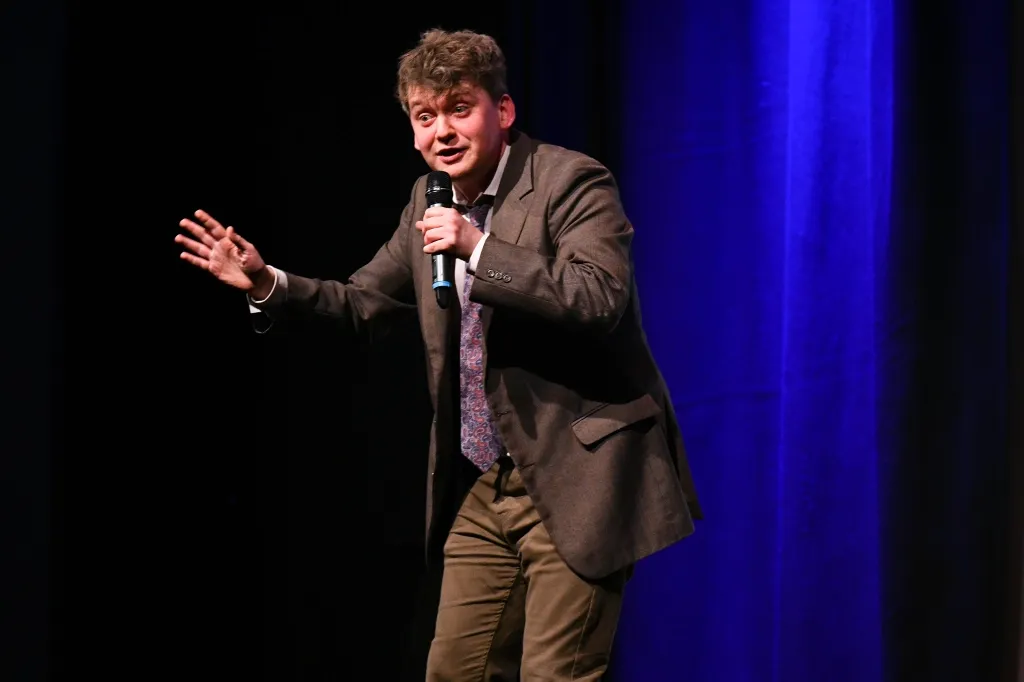
What's this? A show by an early 90s kid with a fixation on cult midcentury BBC TV and Doctor Who in particular? I would consider myself pandered to, but while I love funnier versions of myself repeating my own opinions back to me, I've already got podcasts for that. There's a twist here, though: Peter Fleming isn't, in fact, a comedian (that's some guy called Tom Burgess) but a psychotic former kid's TV producer from the 60s with an axe to grind.
There's a wonderful feel to the thing in a way that's quite hard to nail down. I think it comes down to focus on the correct details: Burgess has an excellent feel for crap kid's show names and the incidental details of television production, and revels in in-show use of idents and pointing out when he's eschewing detail for the sake of a gag. It managed to ride the line between being For Fans and For Normal People very well: you had e.g. a joke about The Dominators being crap, but it didn't need to have any additional context for it to work.
This is the first work in progress show I've seen this year where the work was quite so in progress—the latter stages featured a lot of reference to the notes, but it didn't affect my enjoyment one bit. Already excellent in its unfinished form, I'm sure it will be even better when fully polished. The crêpe-paper regeneration scene had better stay as is, though!
Adam Englebright
There's Another Country
Martin Nichols' There's Another Country is a deeply personal film about his father, the country he grew up in, and the one he'll never know. The title is taken from the patriotic hymn 'I Vow to Thee My Country', whose melody was taken from The Planets suite by socialist composer Gustav Holst—specifically, from 'Jupiter' which, at its premiere performance, made 'the charwomen working in the corridors put down their scrubbing-brushes and beg[i]n to dance'.
Through personal memory, poetry, and theatre, Nichols attempts to rediscover the socialism that may lie beneath today's capitalist Britain. However, Nichols is mourning not only the country of the post-war consensus, but his father who lived through it - as the film opens, we hear a boy calling for his father, and Nichols continues to echo that call. He brings colour to his father's life by re-enacting key moments, colourising old photos, and overlaying these photos over the country as it looks today.
Though the effects and editing of the film may be amateurish, the strength of its story and emotion certainly are not. The final sequence had me on the verge of tears which, granted, is not hard to do, but many of the small but attentive group of friends and strangers who made up the audience shared my feeling. I would love to see this film remade professionally, but even in its current format it is valuable for its vulnerability, its tender retelling of the mining disaster of Senghenydd, and the comparisons it draws to the failures of the government during the early years of the COVID pandemic. During the intimate Q & A with Nichols that followed the screening, he told us he is hoping to screen the film across the country, and I would encourage you to seek it out.
Owen Jones
Galatea
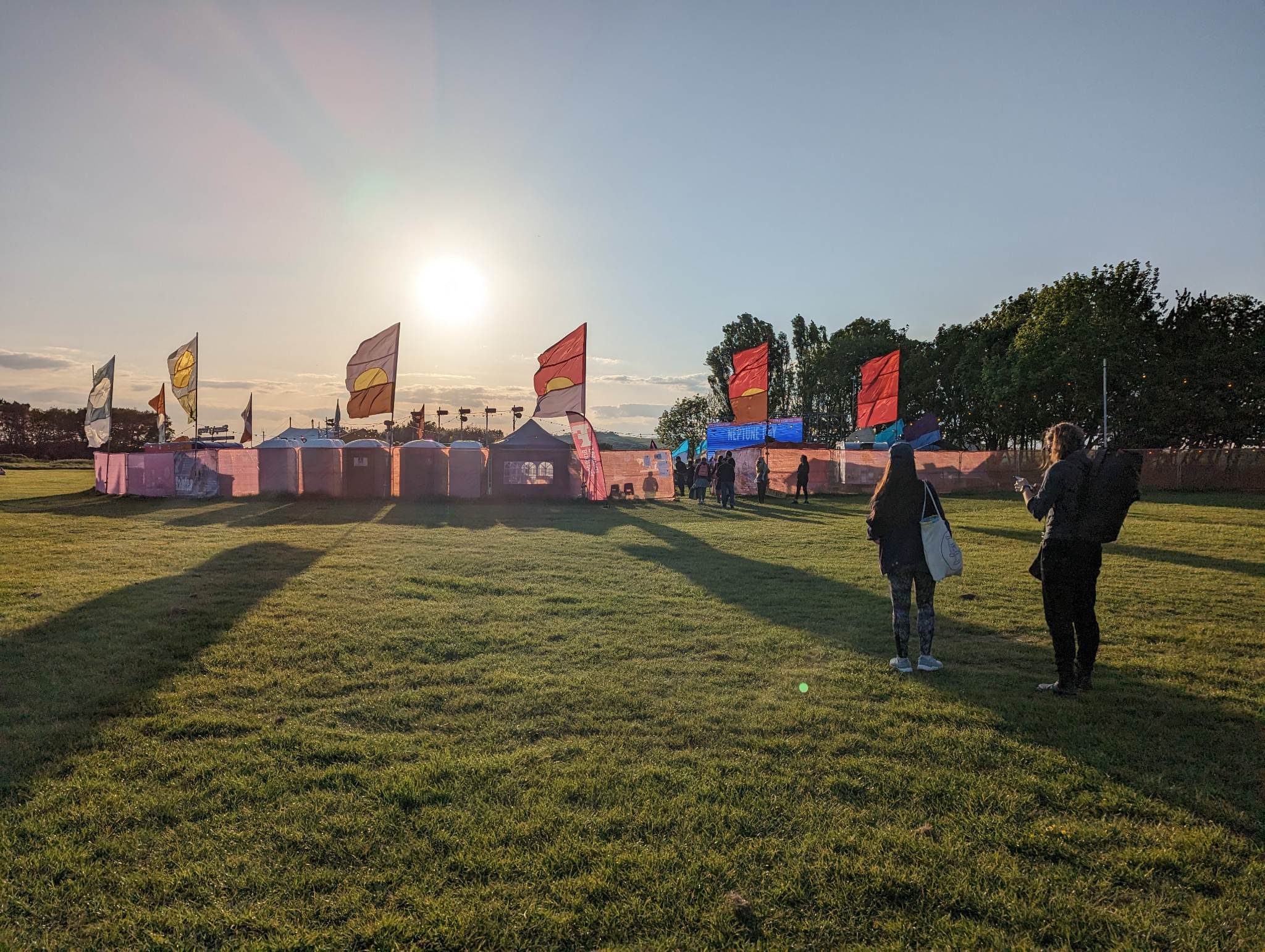
Galatea is a modern and queer reworking of a 16th century play by one of Shakespeare's almost forgotten contemporaries, John Lyly. The open-air setting at the Adur Recreation Ground was immersive from the off, with large, colourful flags and a range of food, drink, and games stalls set up in celebration of 'Neptune Day', and actors milling about handing out flags, holding protest signs, and answering questions about their professions.
The stage itself was simple but effective, with large wooden walkways and an even larger screen backdrop. The performance itself was a perfect integration of BSL, Shakespearean (or Lylean) and modern English, and song, with a live choir providing beautiful vocalisations at just the right moments, and some passages of the original play adapted into powerful songs. The costumes were gorgeous, bohemian and folklore-ish in the case of the nymphs, and lavish and camp for Venus and her son, Cupid (both of whom were upraurious crowd pleasers). The whole script was subtitled on the screen behind the stage but, like the subtitles of the last section were by some of the cast members, the original text was at times obscured by the modern themes Emma Frankland and Subira Joy had superimposed onto it.
Though the additions of a refugee, trans characters, and a transphobic journalist allowed for vital and scathing explorations of current affairs, they sometimes clashed with the original characterisations and metaphors so that the central message of acceptance was at risk of being muddled. However, this risk was lessened by some inventive and truly excellent moments of storytelling, such as Hebe shifting from spoken English to BSL to show their decision to live authentically as themselves, and the explicit subversion of the original script in the finale. It's easy to nitpick the finer details when the adaptation changed the original script so radically, in all senses of the word.
With some standout performances, from Phillida, Cupid, Peter, Hebe, and Telusa especially, this attentive, funny, and moving piece was unrelentingly adamant in its celebration of acceptance, protest, and trans magic, and this magic continued to fill the atmosphere even as I ran for the bus wrapped in my picnic blanket. I hope that many of you got to experience Galatea during its run—if you didn't, I urge you to keep an eye out for future projects from this team, as I certainly will.
Owen Jones
Sons
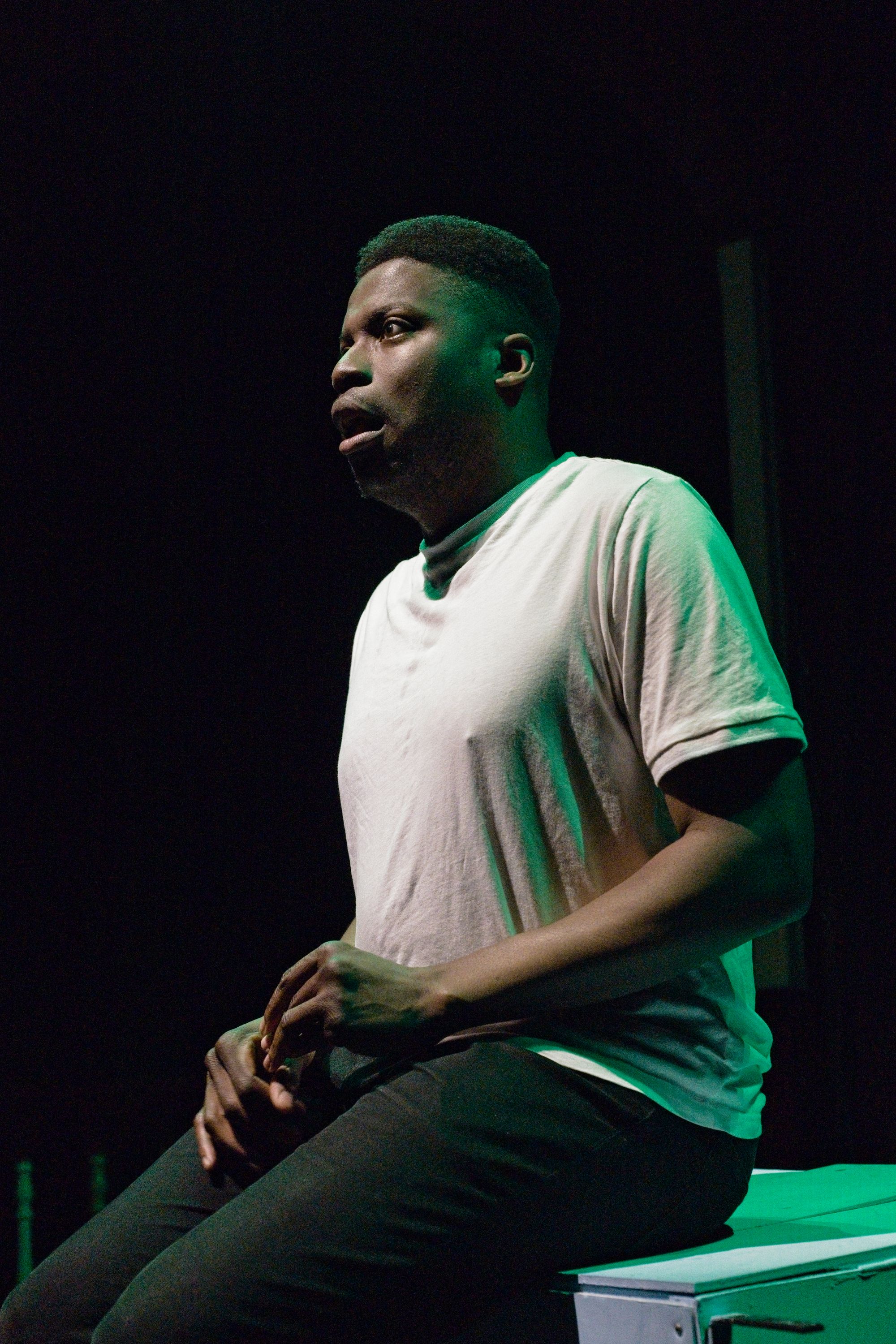
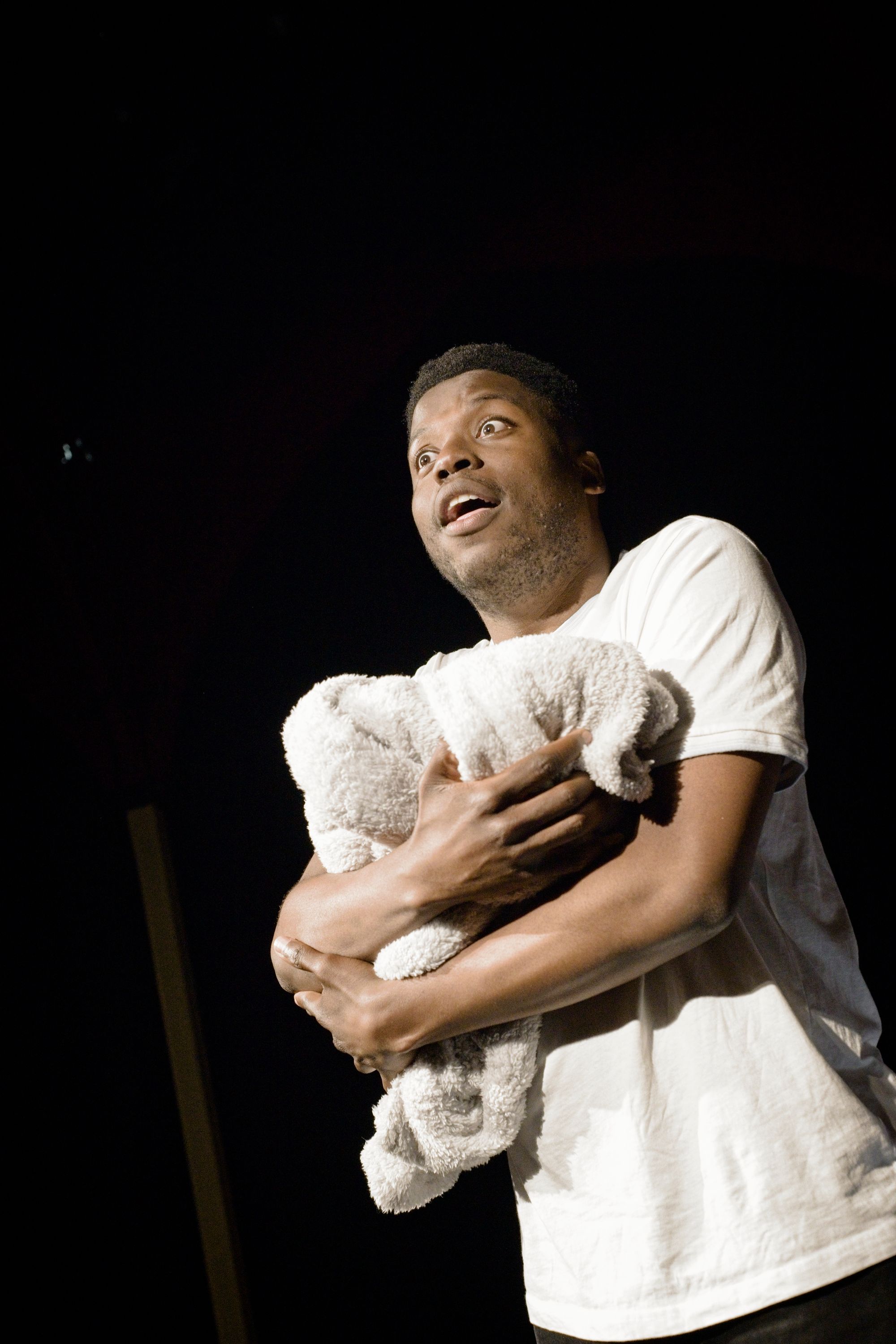
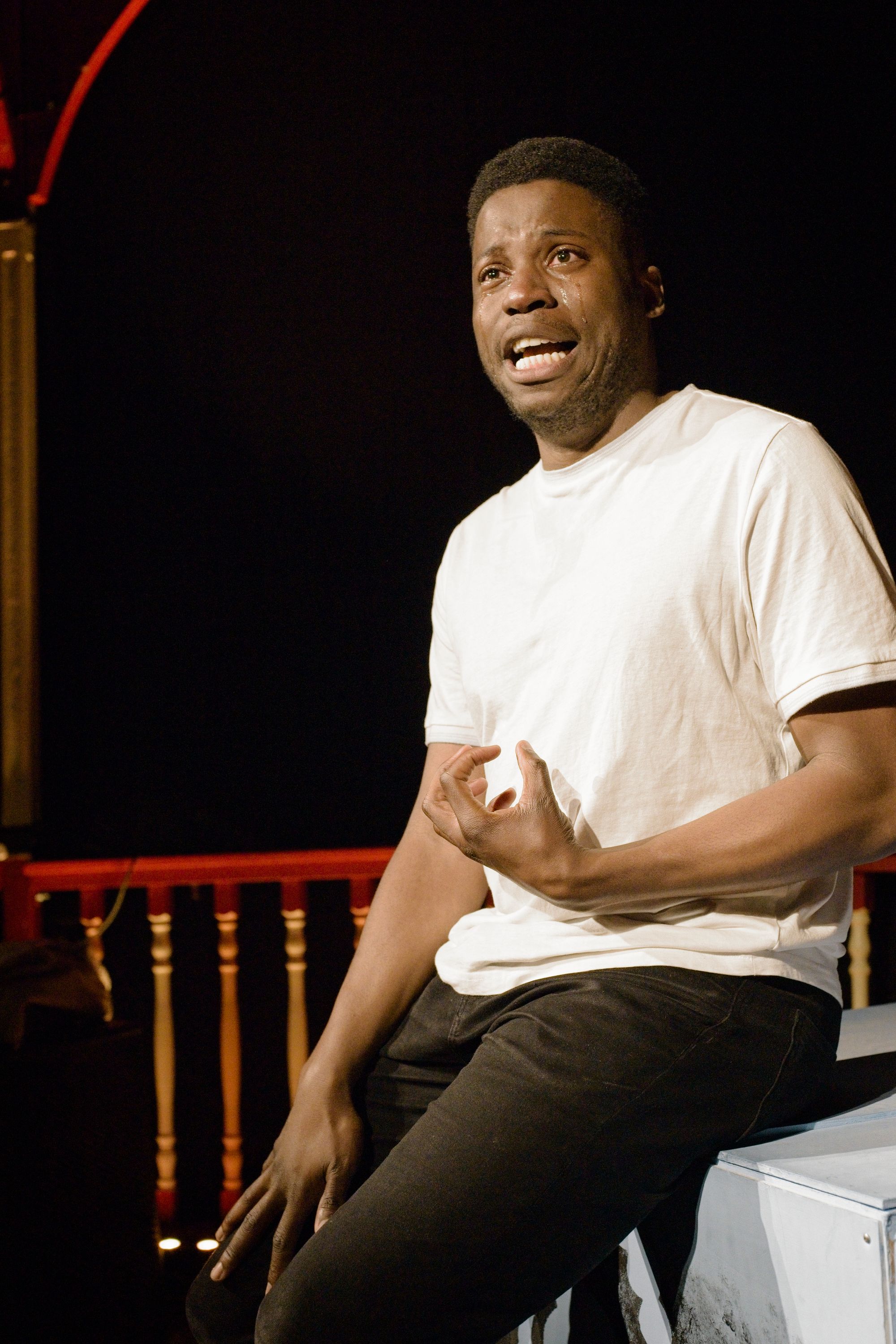
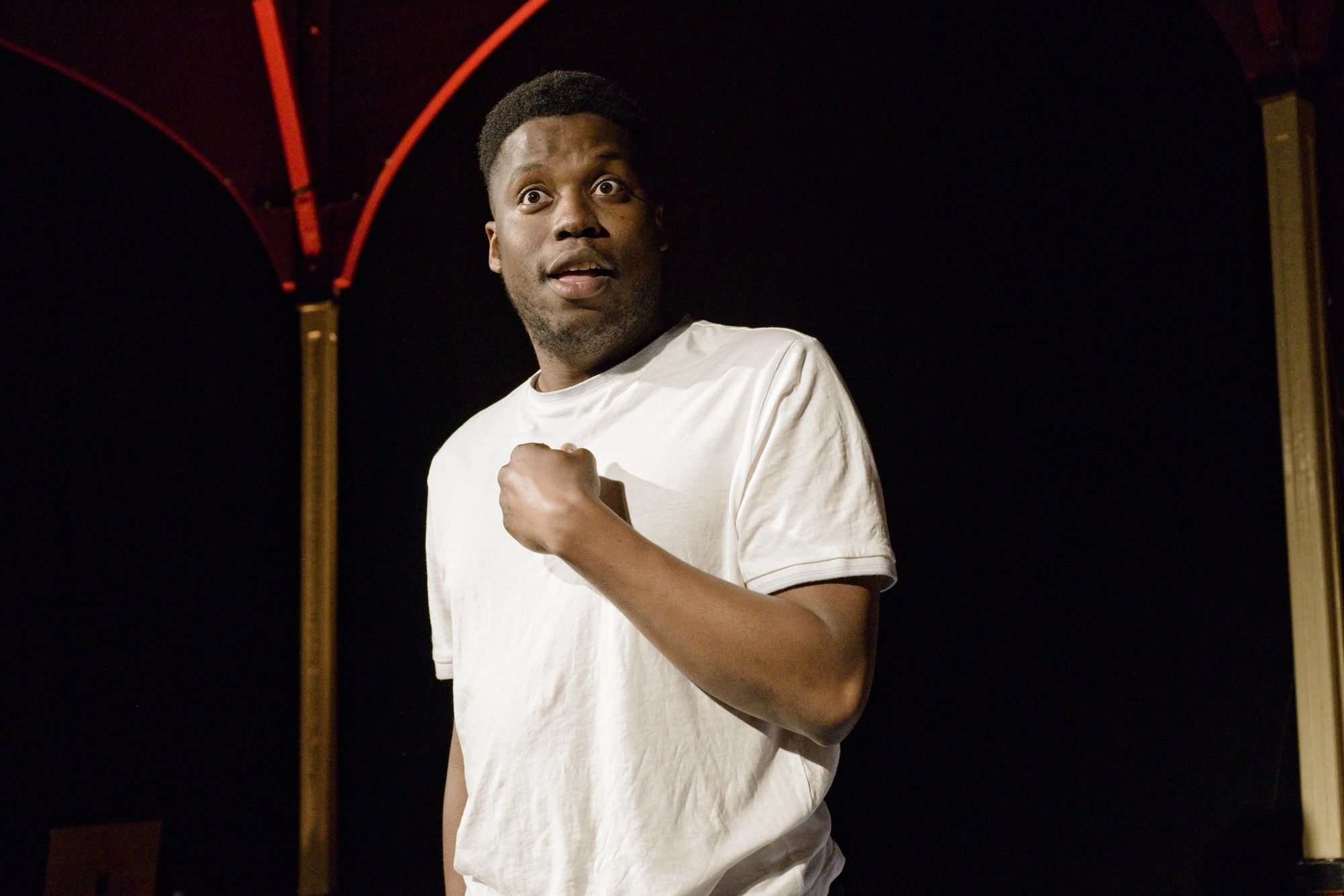
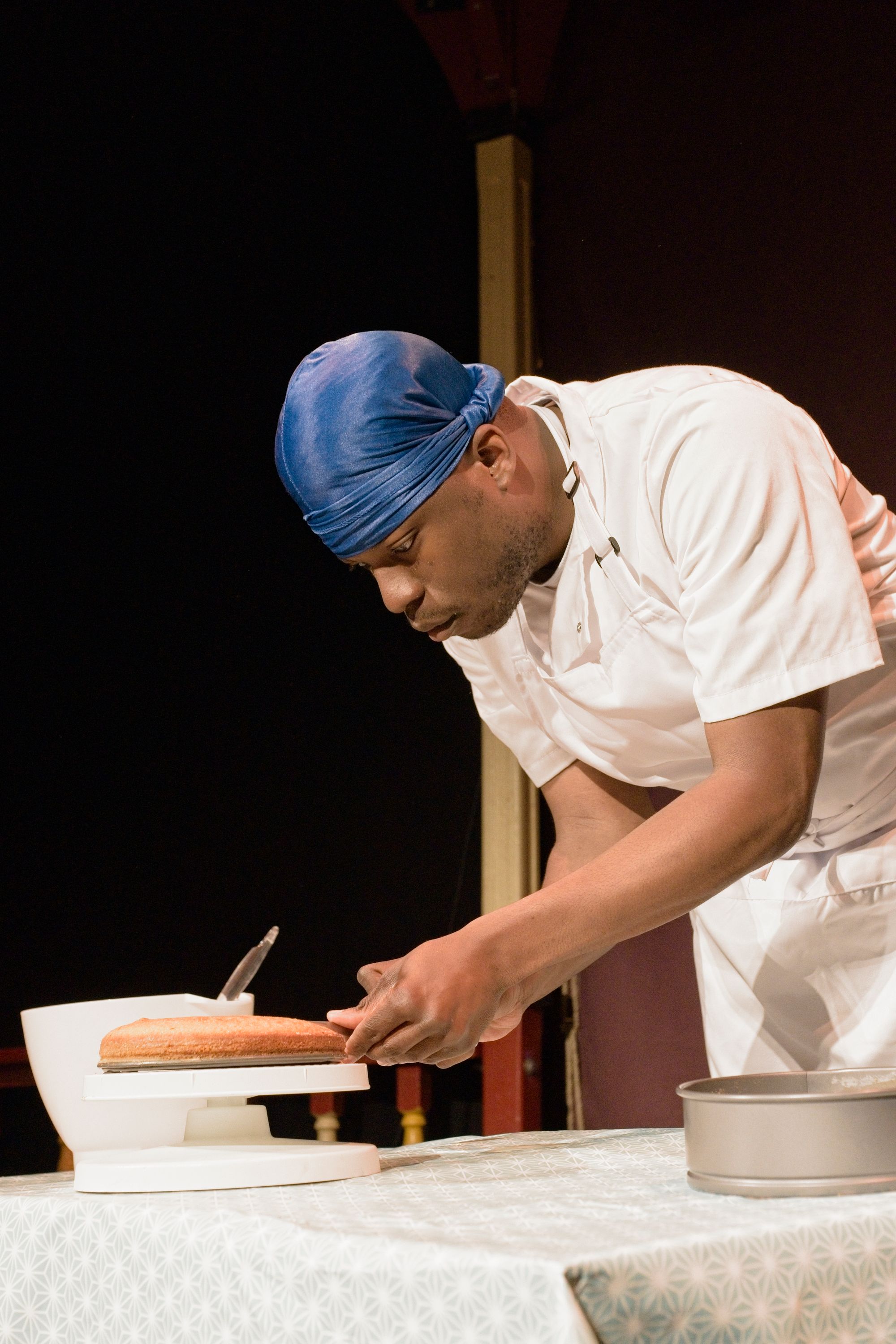
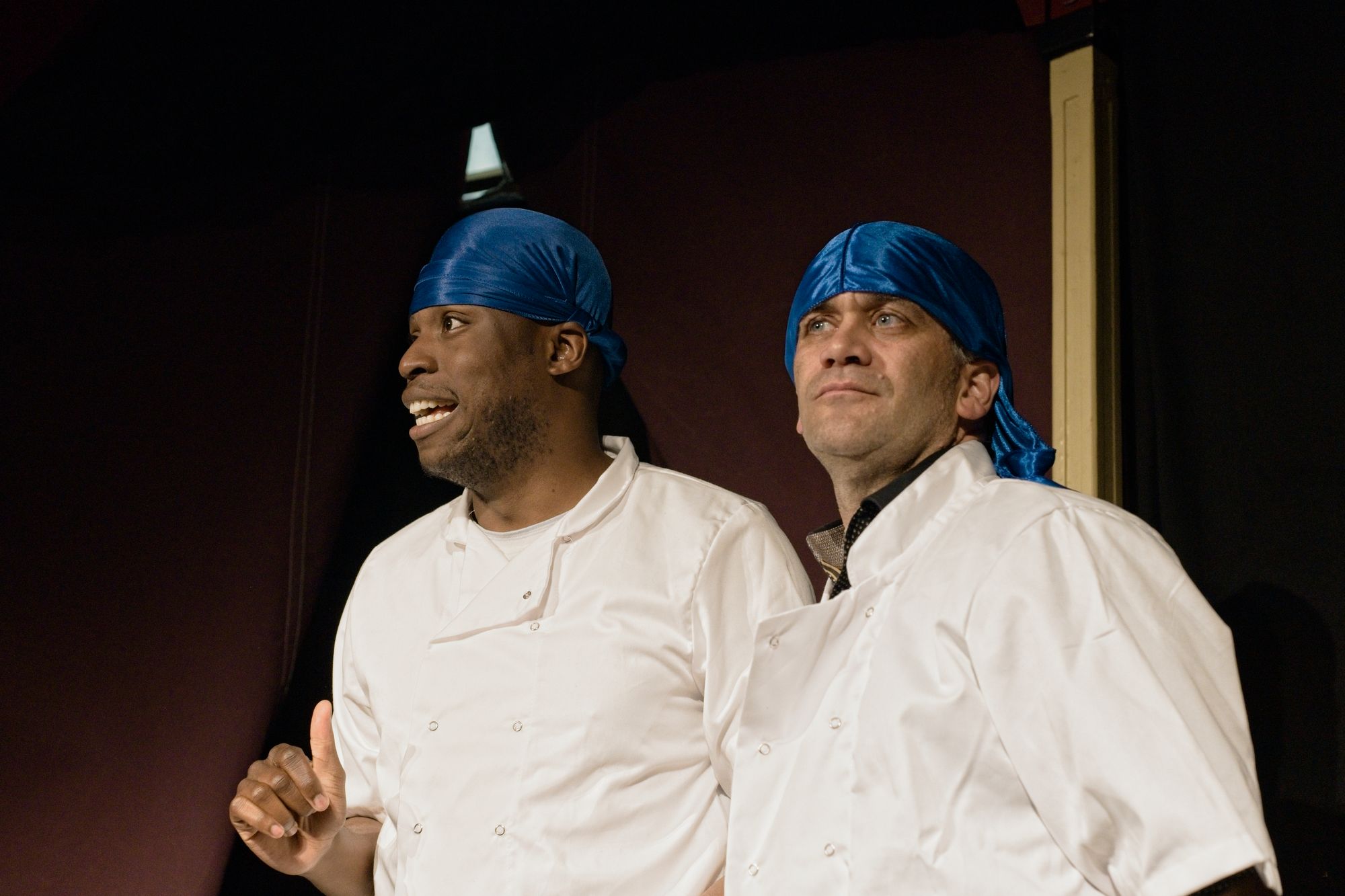
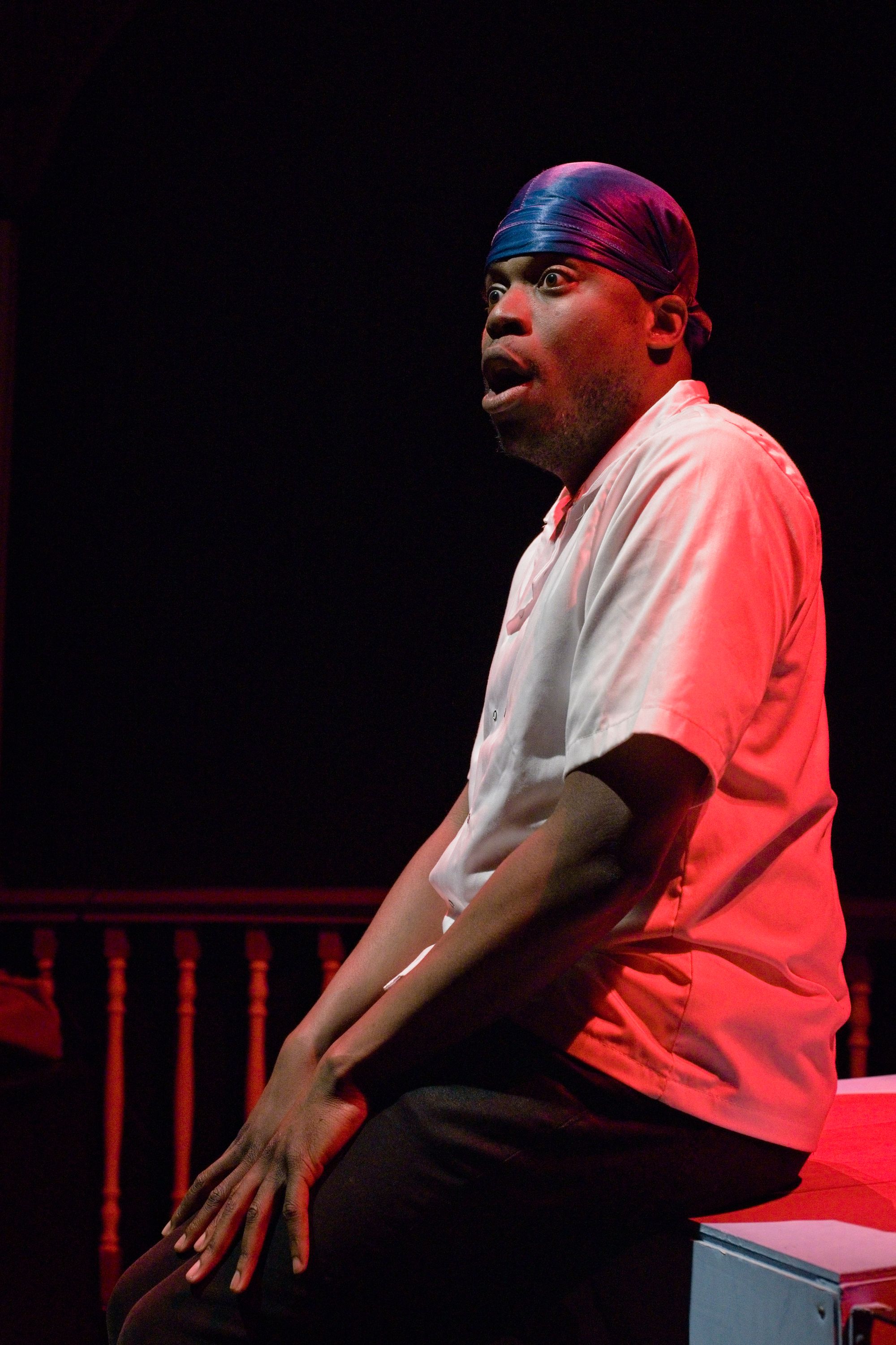
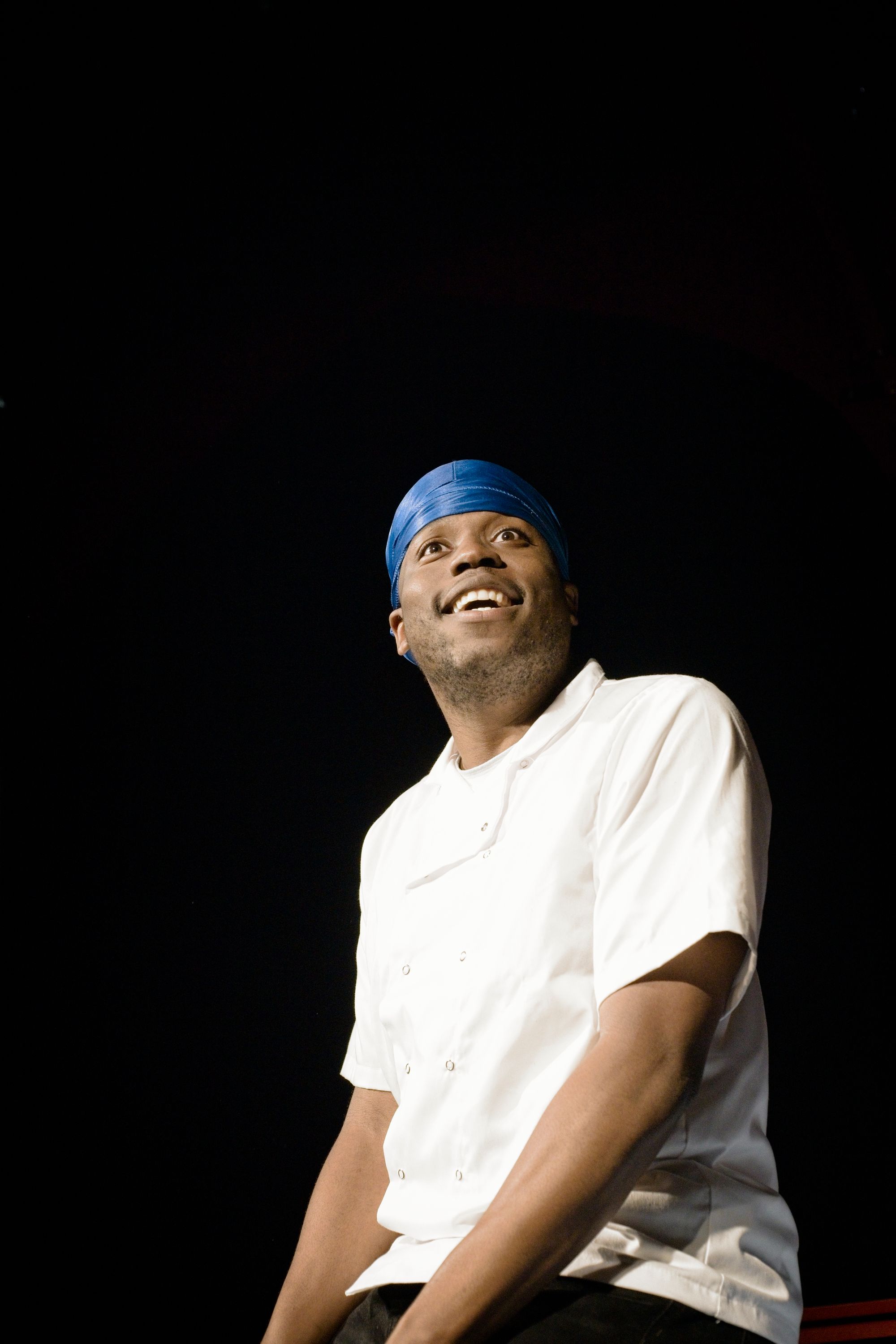
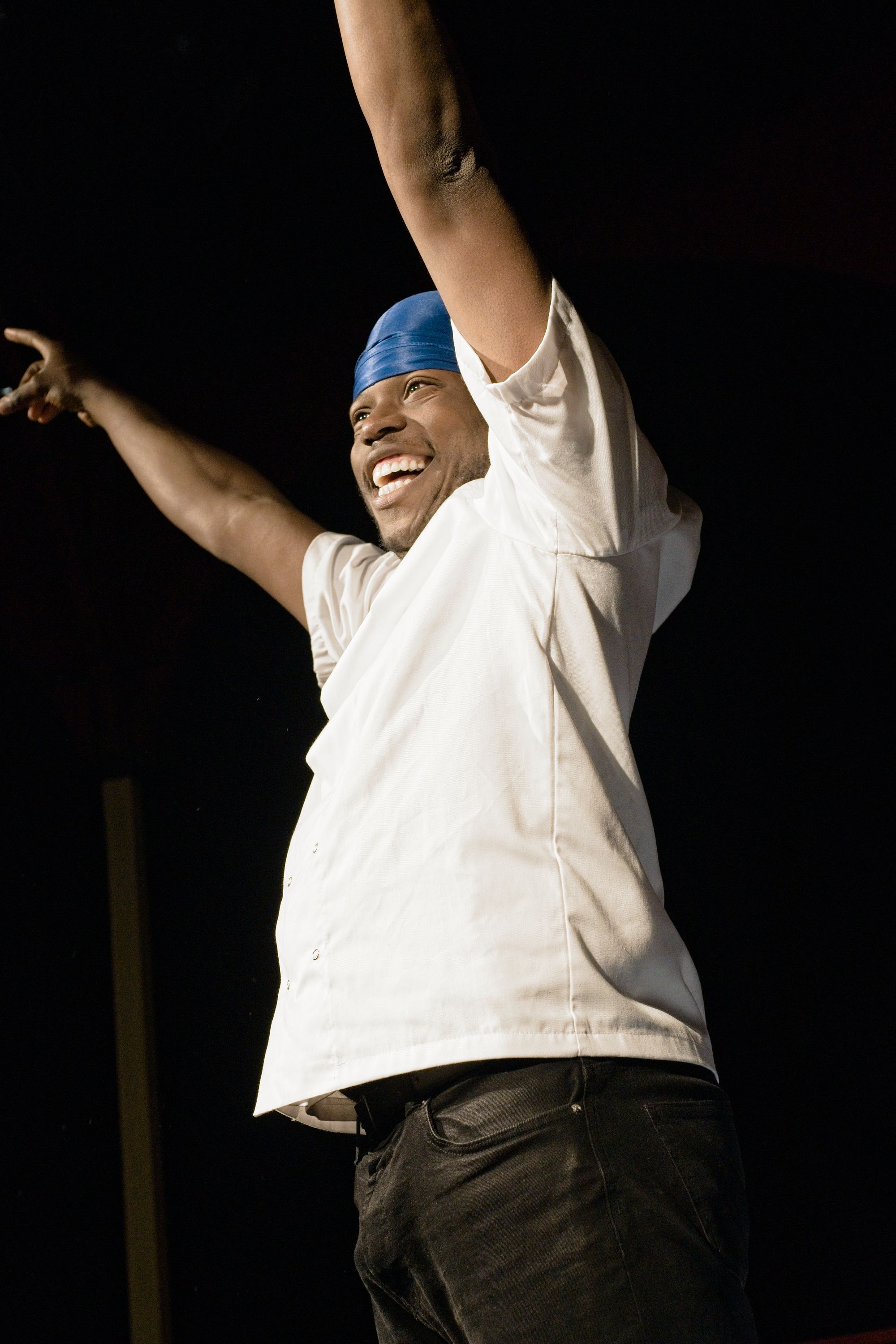
Source: Roxy van der Post
Roxy van der Post
The Lost Play of Barry Wayworm
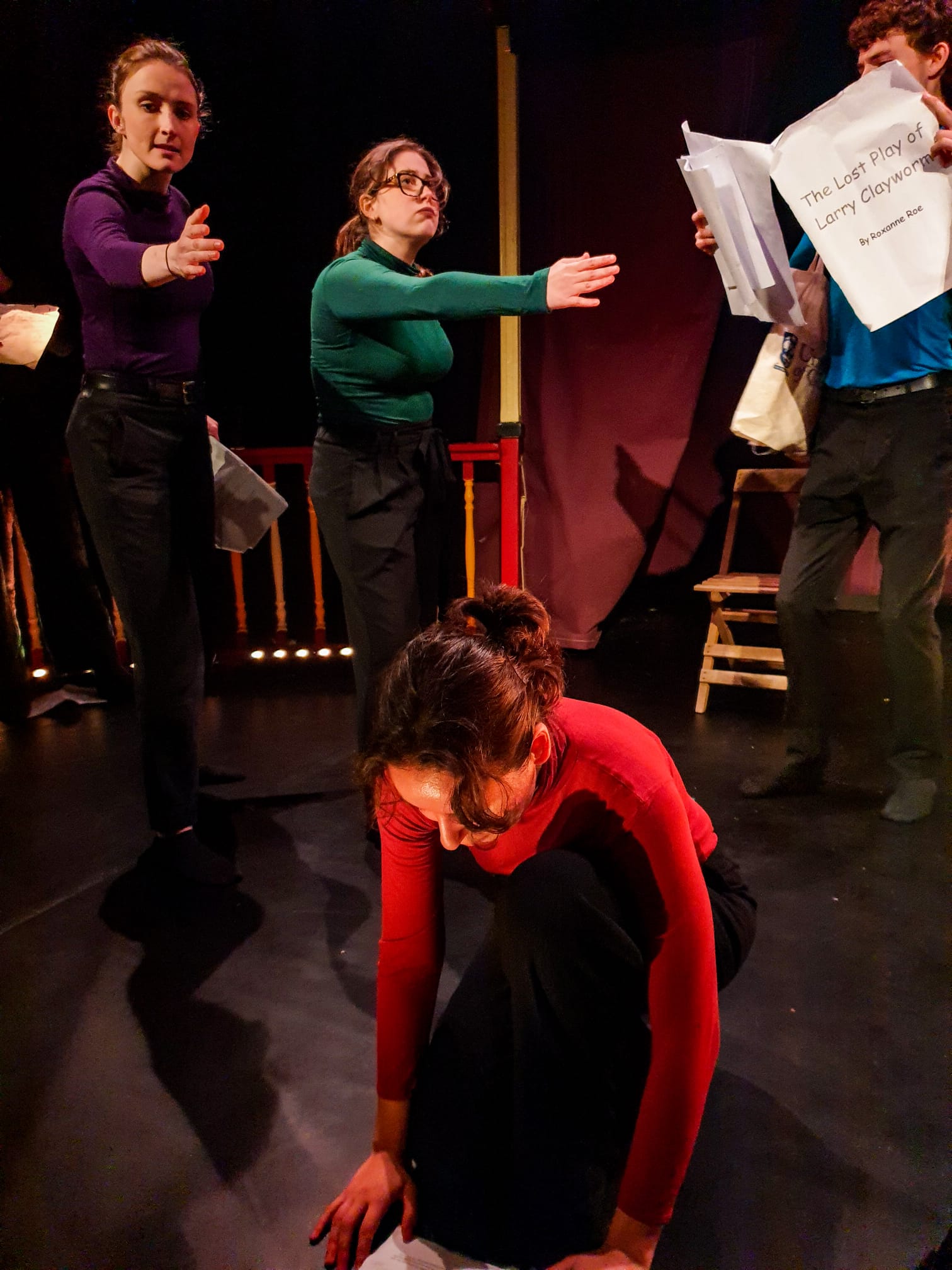
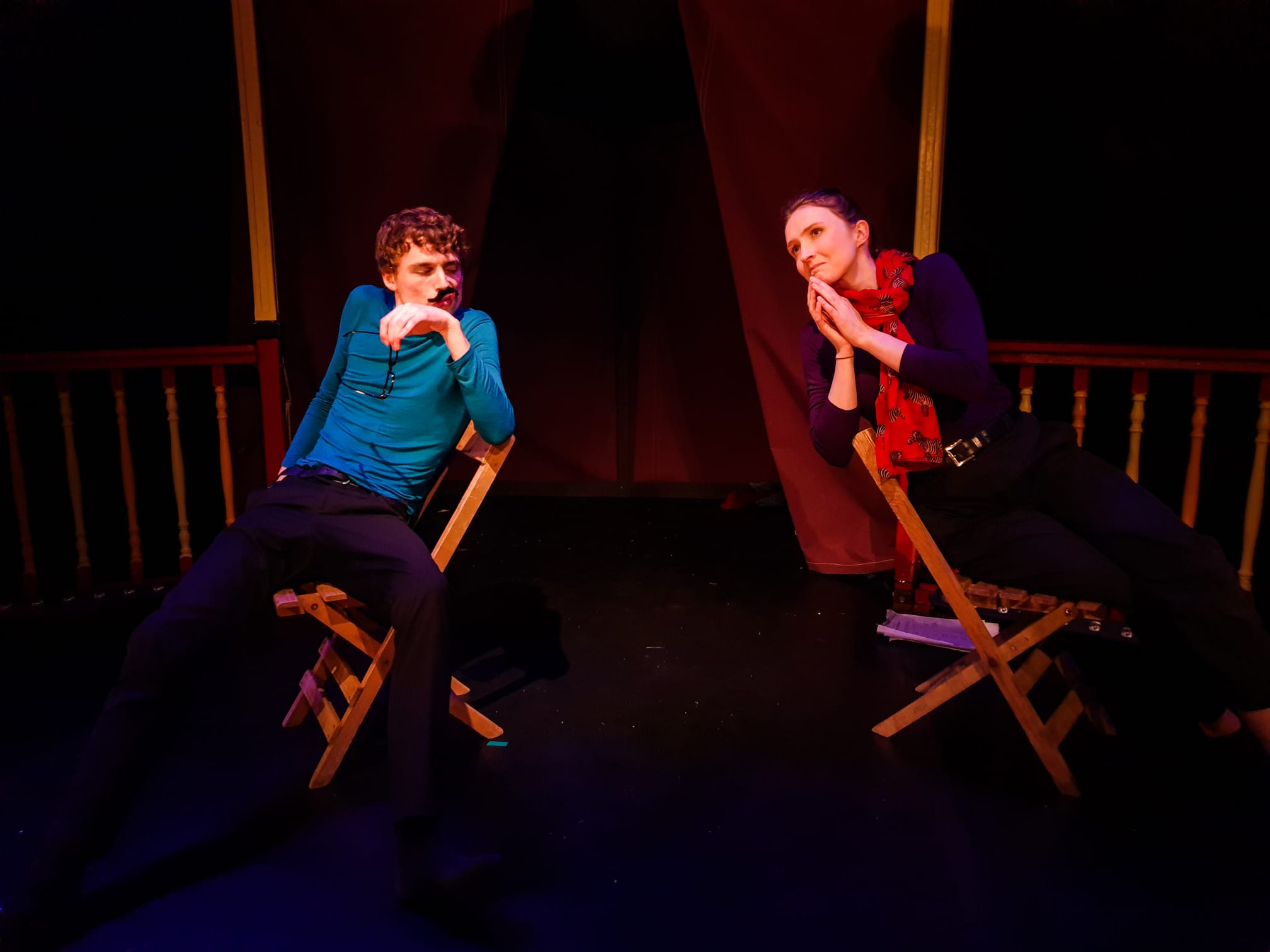
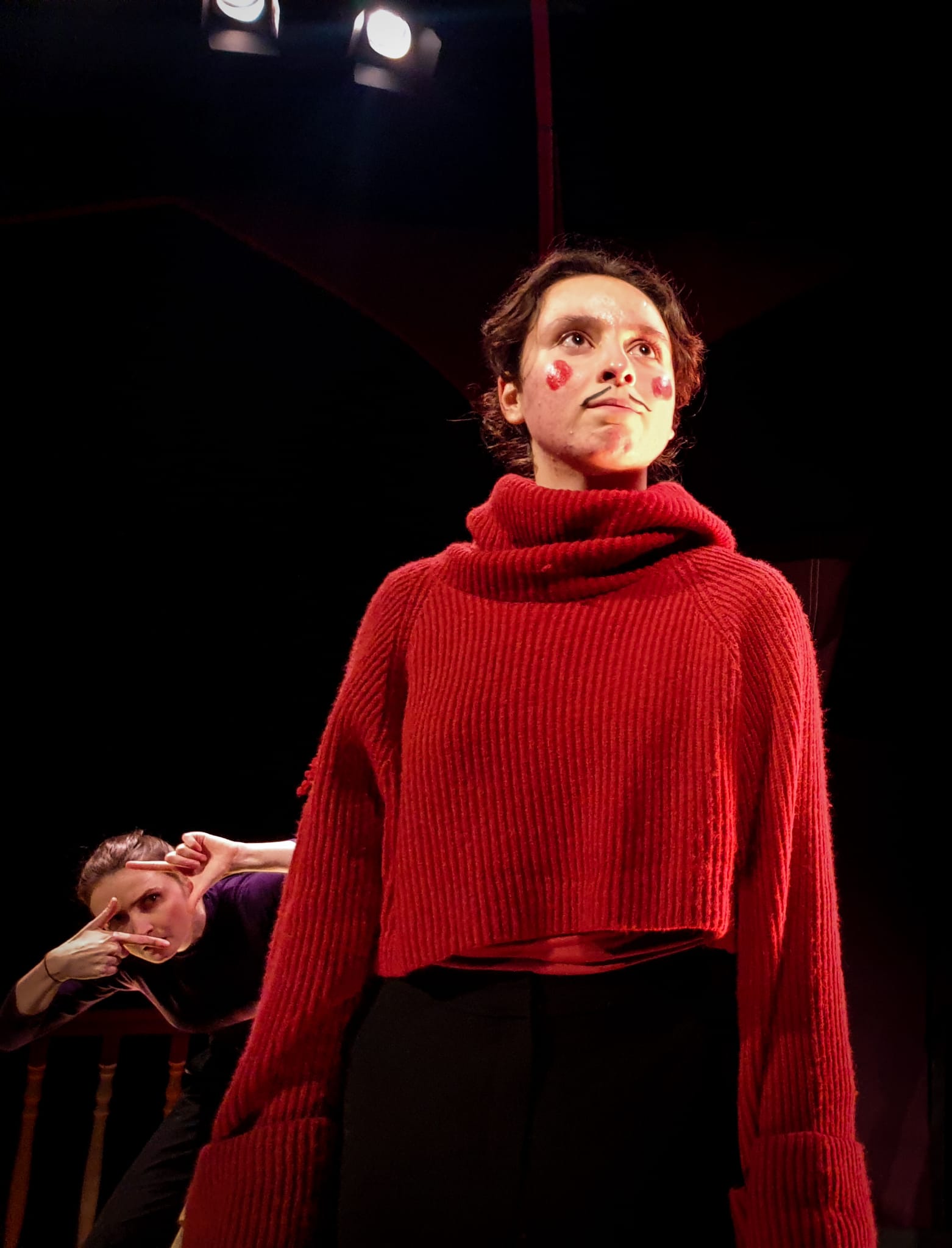
Source: Sam Dodgshon
The Lost Play of Barry Wayworm is actually a play about a writer and director, writing a play based on a man called Harry Hayworm. I think.
The Junk Poets stage in Caravanserai makes for an odd viewing experience, as the music and chatter from outside the tent occasionally distract from the dialogue of the actors. However, this is only minor: the play’s humour is not completely outshone.
The cast of five centres around the portrayal of a slightly deranged Harry Hayworm, whose ‘flamboyant’ and ‘loud’ persona garners the most laughs. However, it wouldn’t be so effective as a satirical comedy if it was not for Alex, the ‘director’ and his dynamic with Diane, the writer. His more muted, slightly burnt-out persona is what amplifies the exaggerated nature of the other characters so well.
While I have no experience in the world of theatre, it’s easy to appreciate the satire, with the over-the-top creativity of the writer clashing with the ‘naturalistic’ vision of the frustrated director, and the childish and self-centred depiction of ‘act-ors’ all embodying the pretentiousness associated with the industry. This successful portrayal, plus the use of music and physical comedy throughout, make for an entertaining show.
Olivia Kelly
Balthazar Dark: Wrestling With Saddos

For the second time this week, I ventured out to see character comedy about a topic close to my heart, and for the second time, it completely delivered. Balthazar Dark (Andrew Marsh) is the best professional wrestler you've never heard of, and he's venturing into the world of standup. It's a path others have trod before—but is he a Foley-esque success or a Ziggler-style jobber? I'd have to say he's a Foley, on the basis that he's hilarious, wore a Cactus Jack shirt and appeared at times to be having a breakdown on stage in a manner reminiscent of Mankind—but thanks to the support of manager/compere Thom Bee (and, uh, me, I guess?) he made it through, got the AEW contract, hit the big-time.
If none of that made any sense to you, don't worry: all you need to know is that this was absolutely hilarious. I was (probably due to the Albion game) the only person in attendance but that didn't hurt it at all. It's the only show I've been to this year (or ever) where I've got to sign the performer's stomach at the end, and that alone is worth the price of admission.
Adam Englebright
At Eternity's Gate
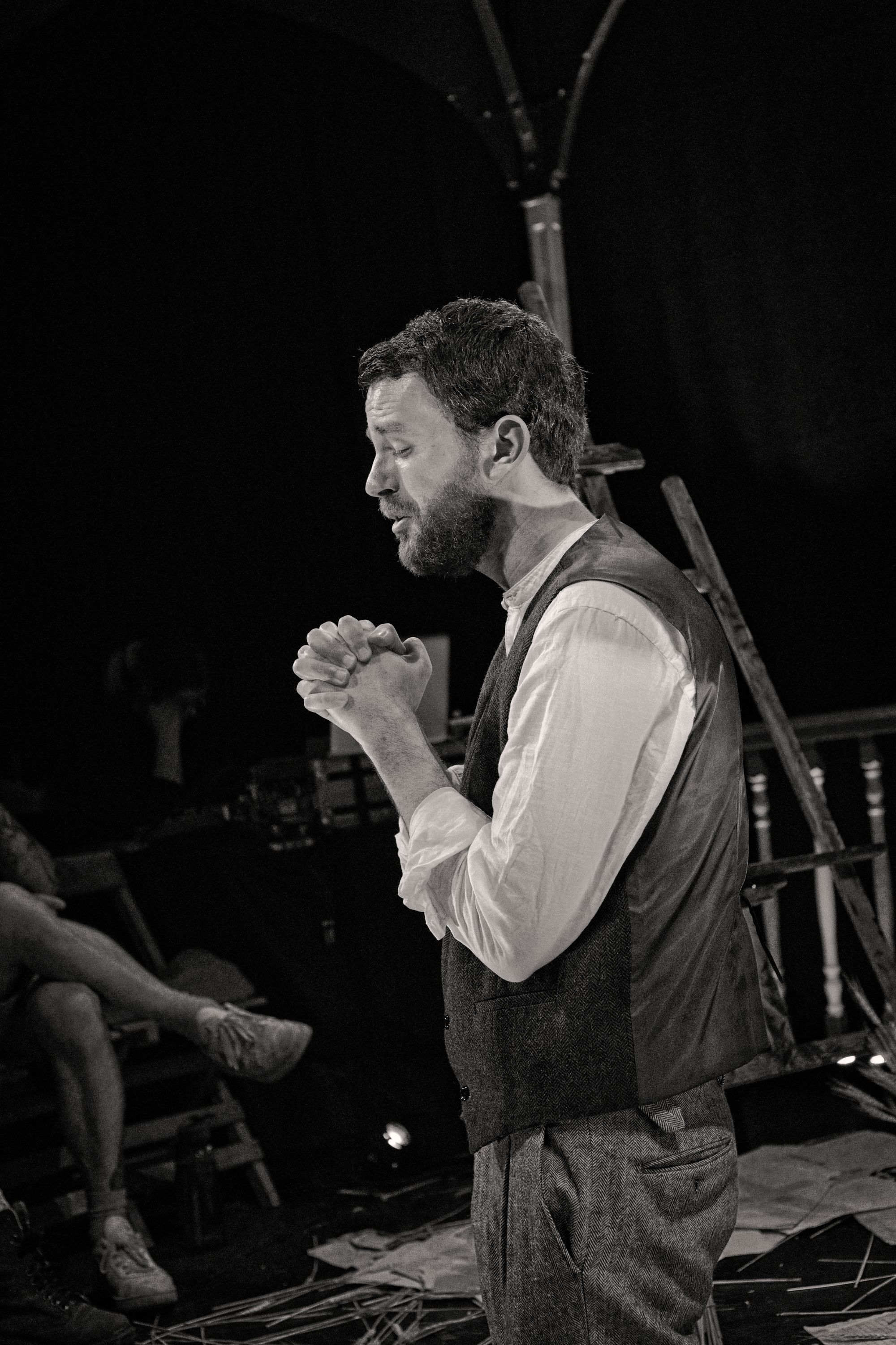
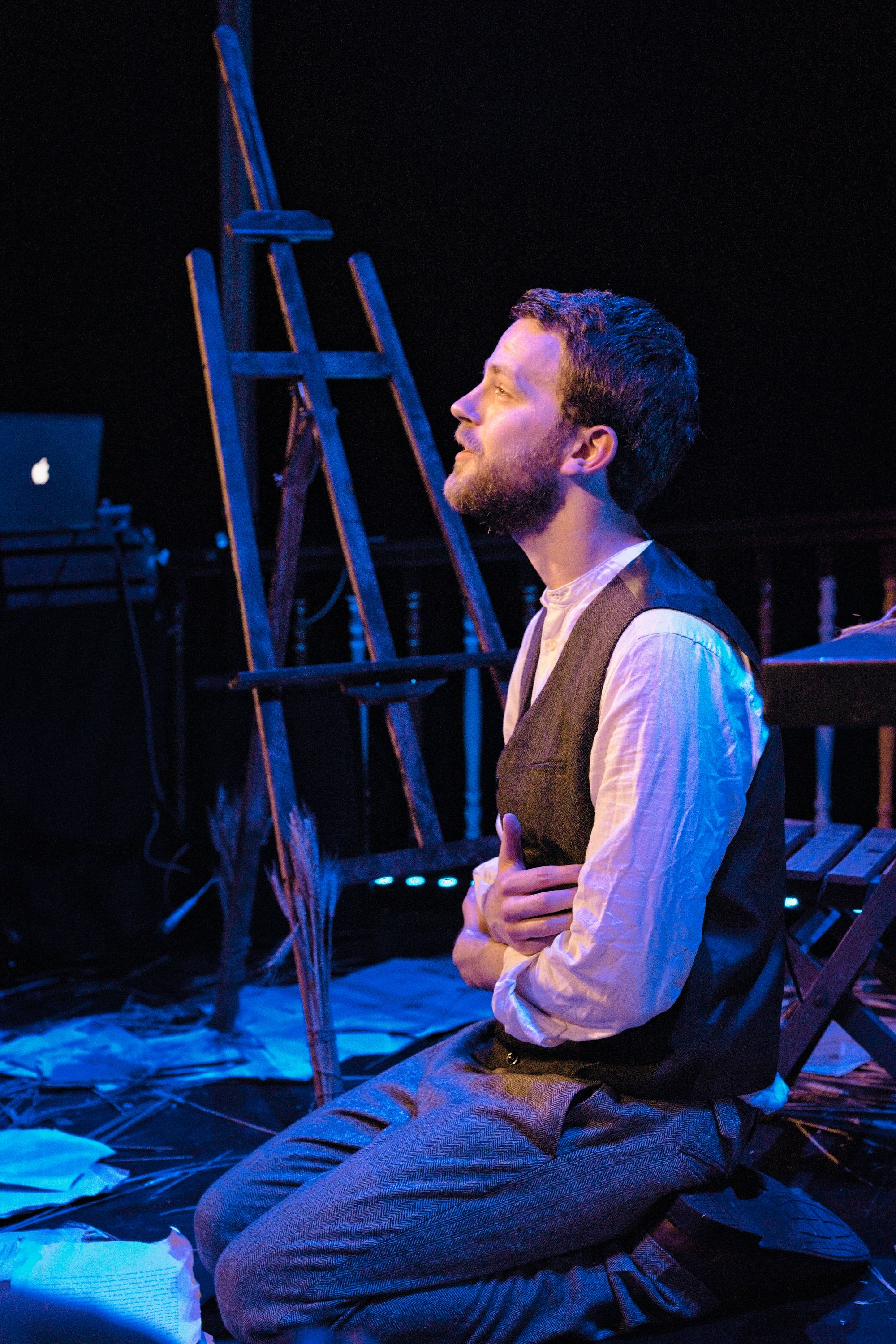
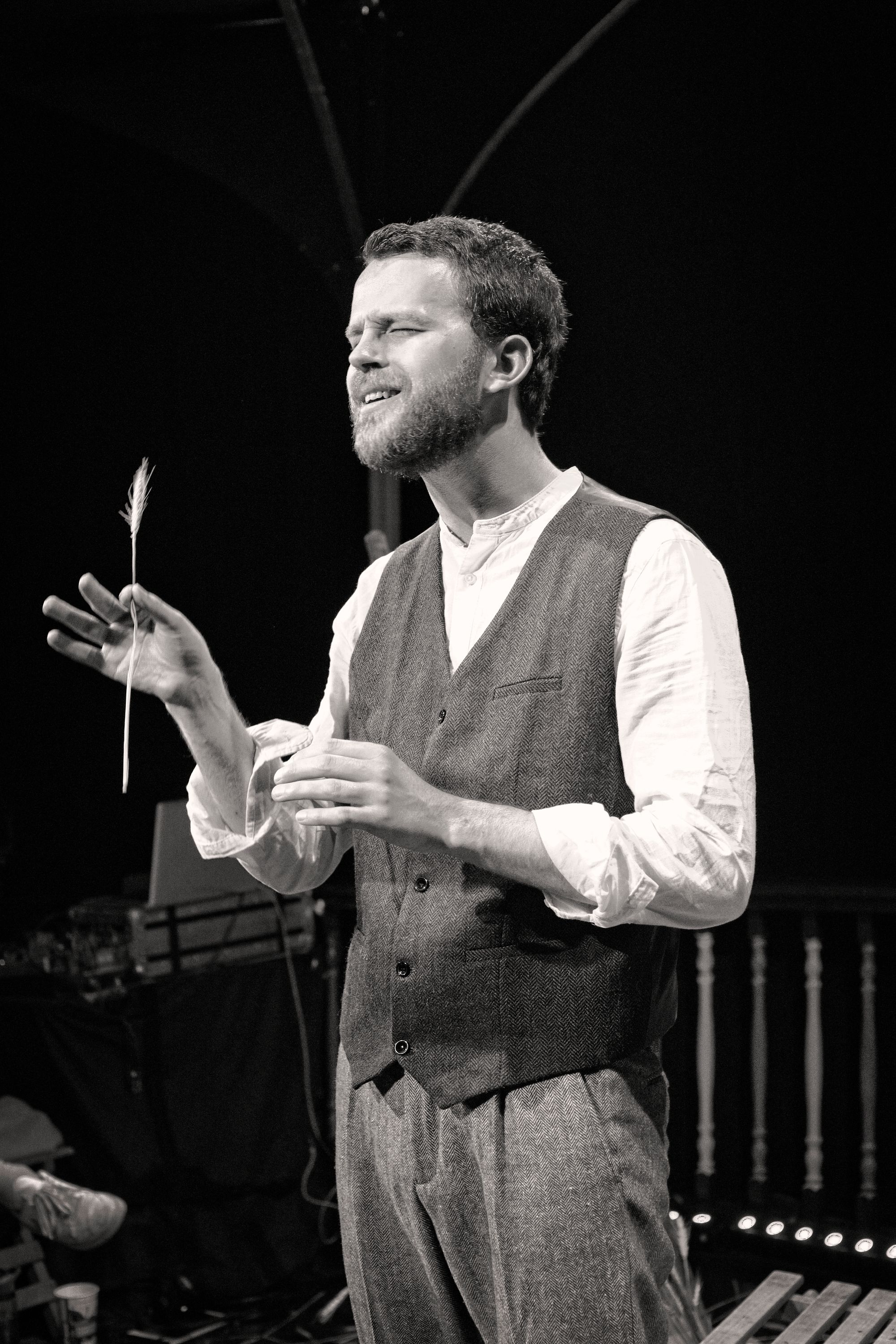
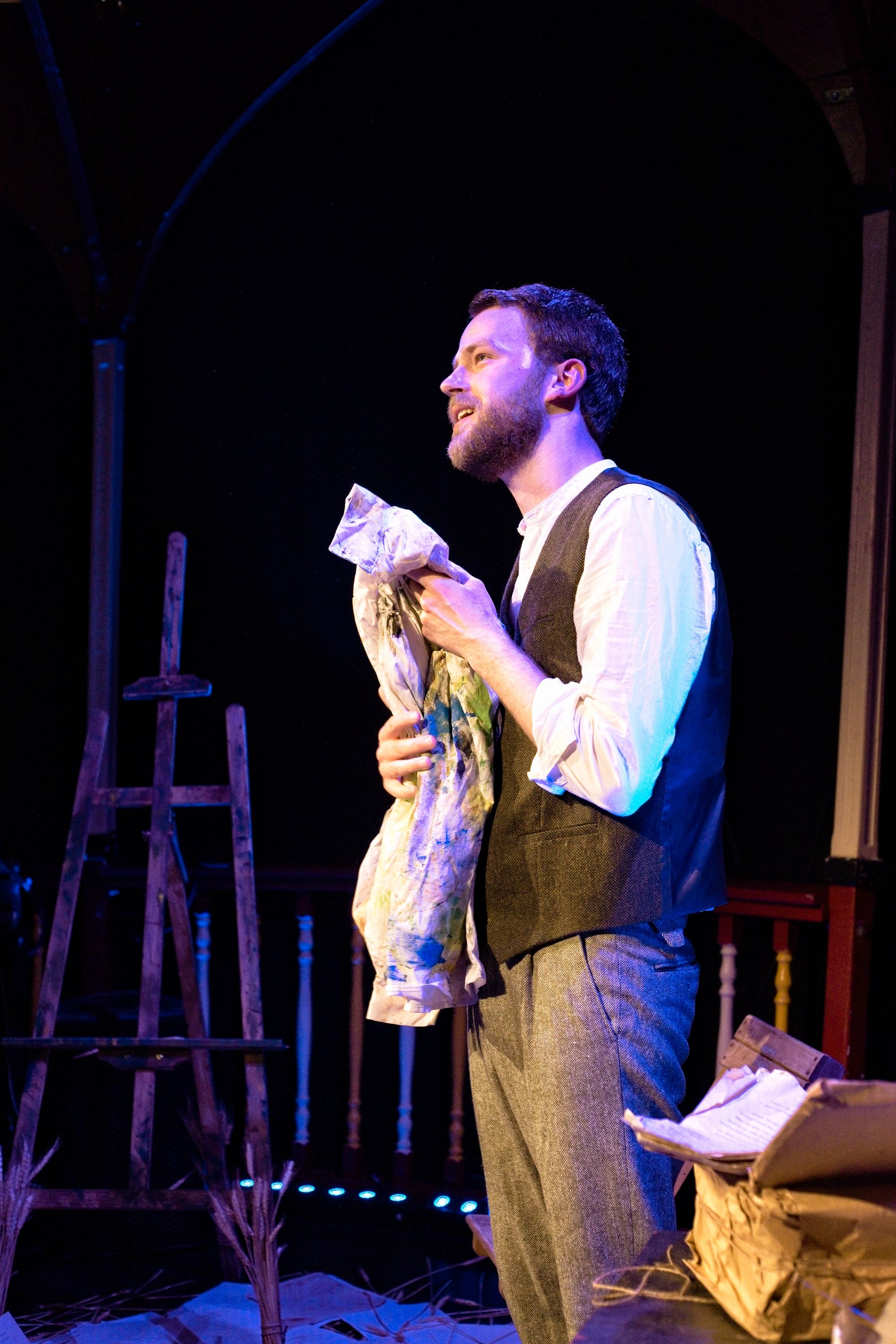
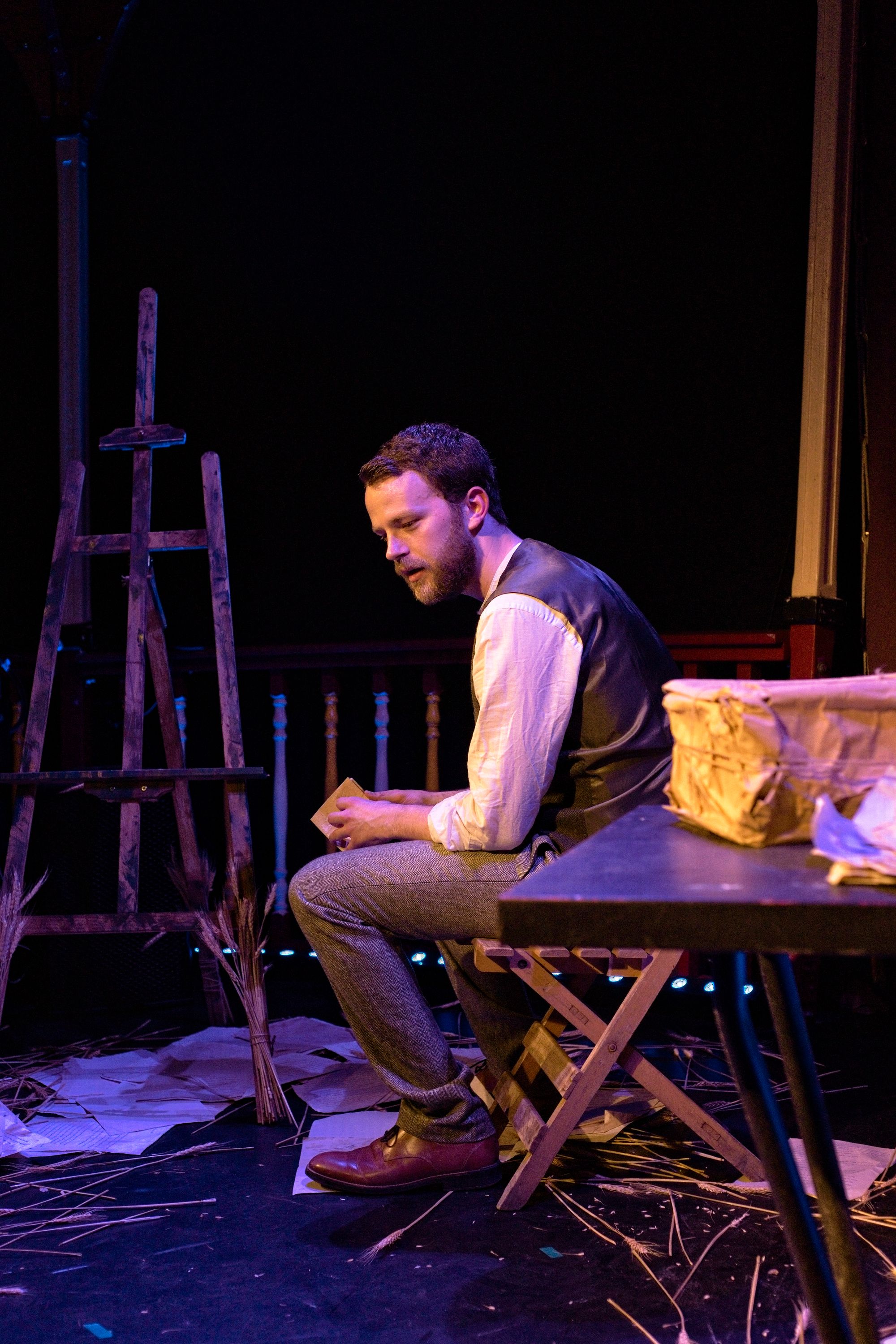
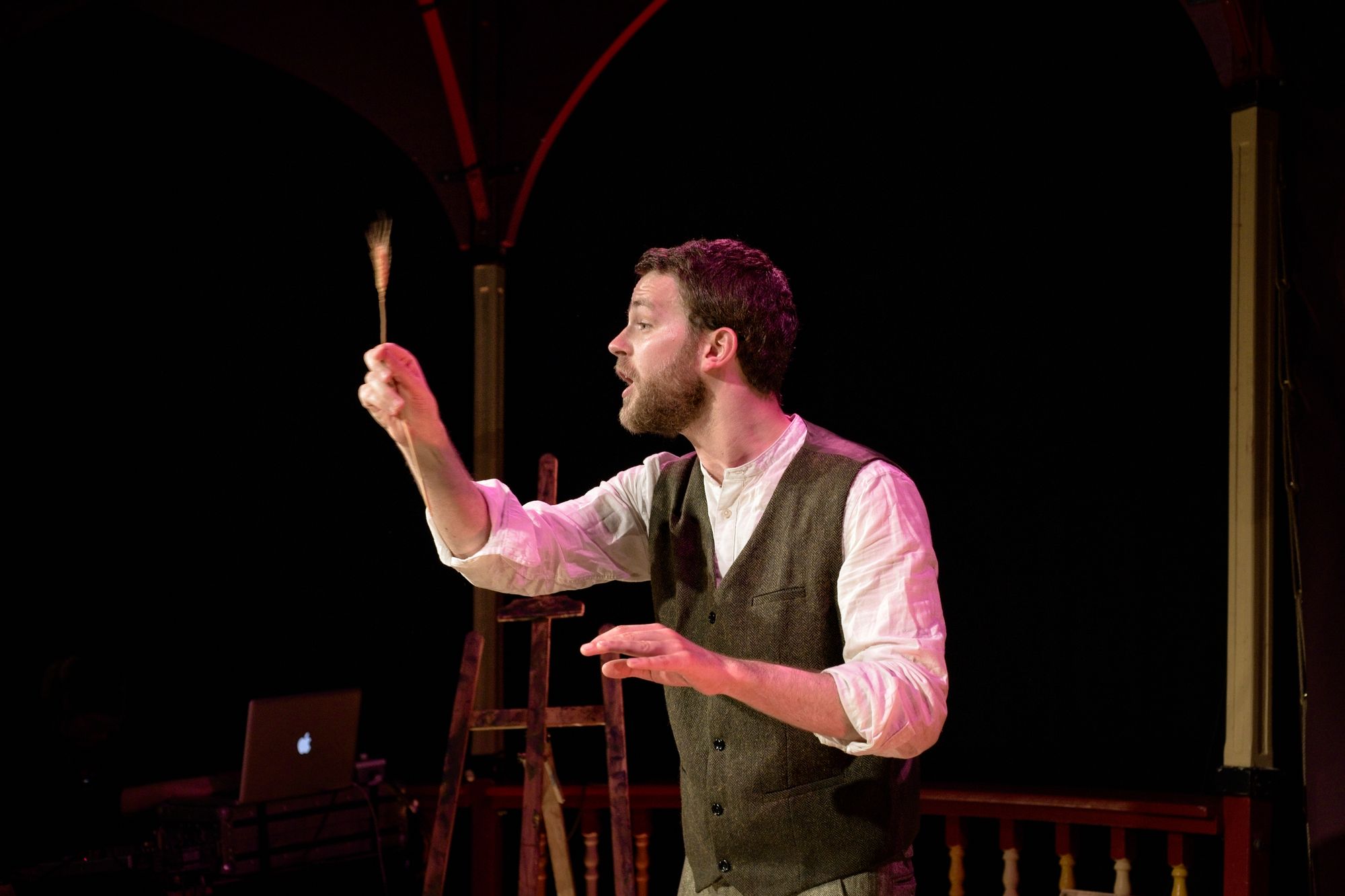
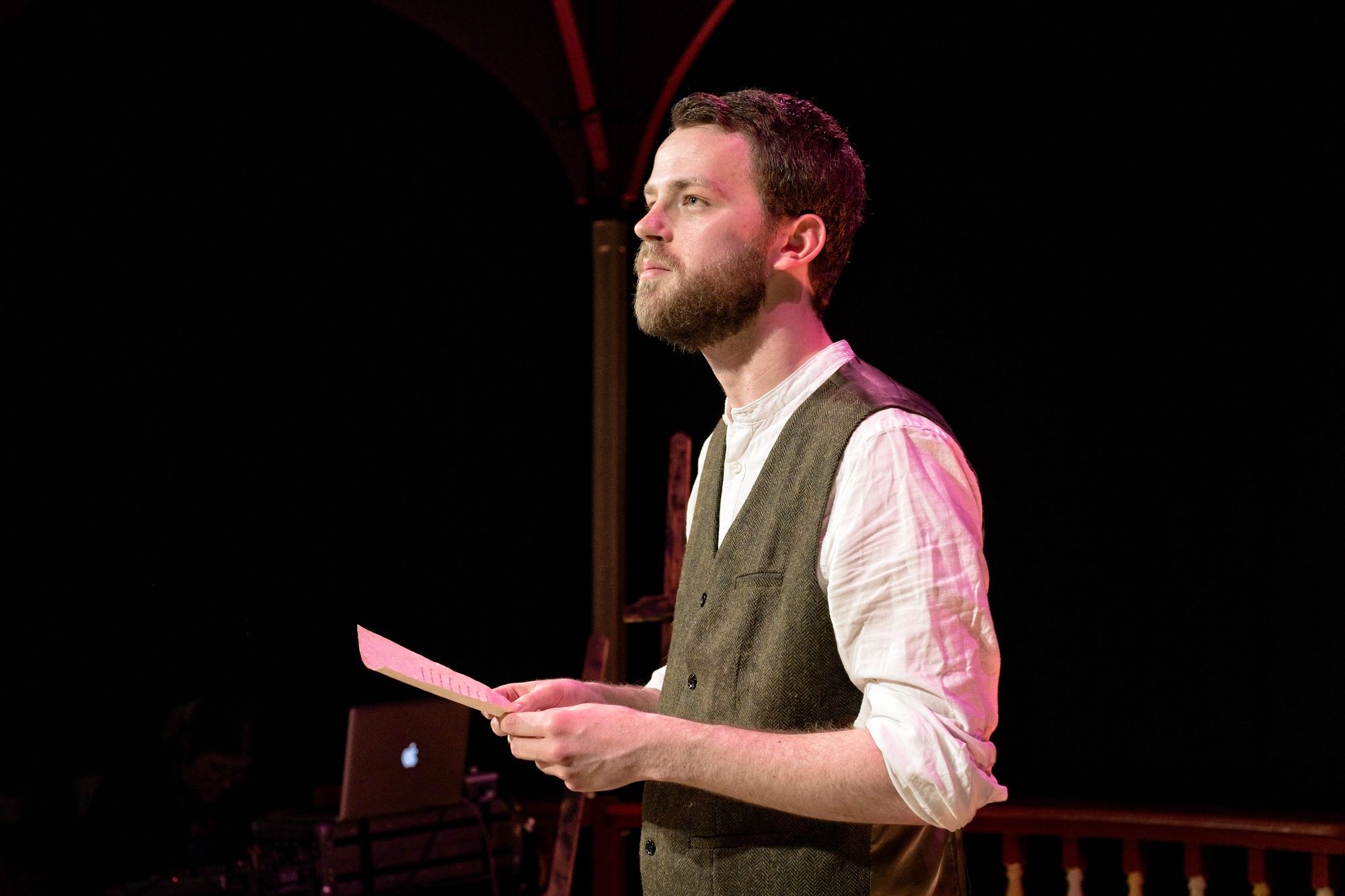
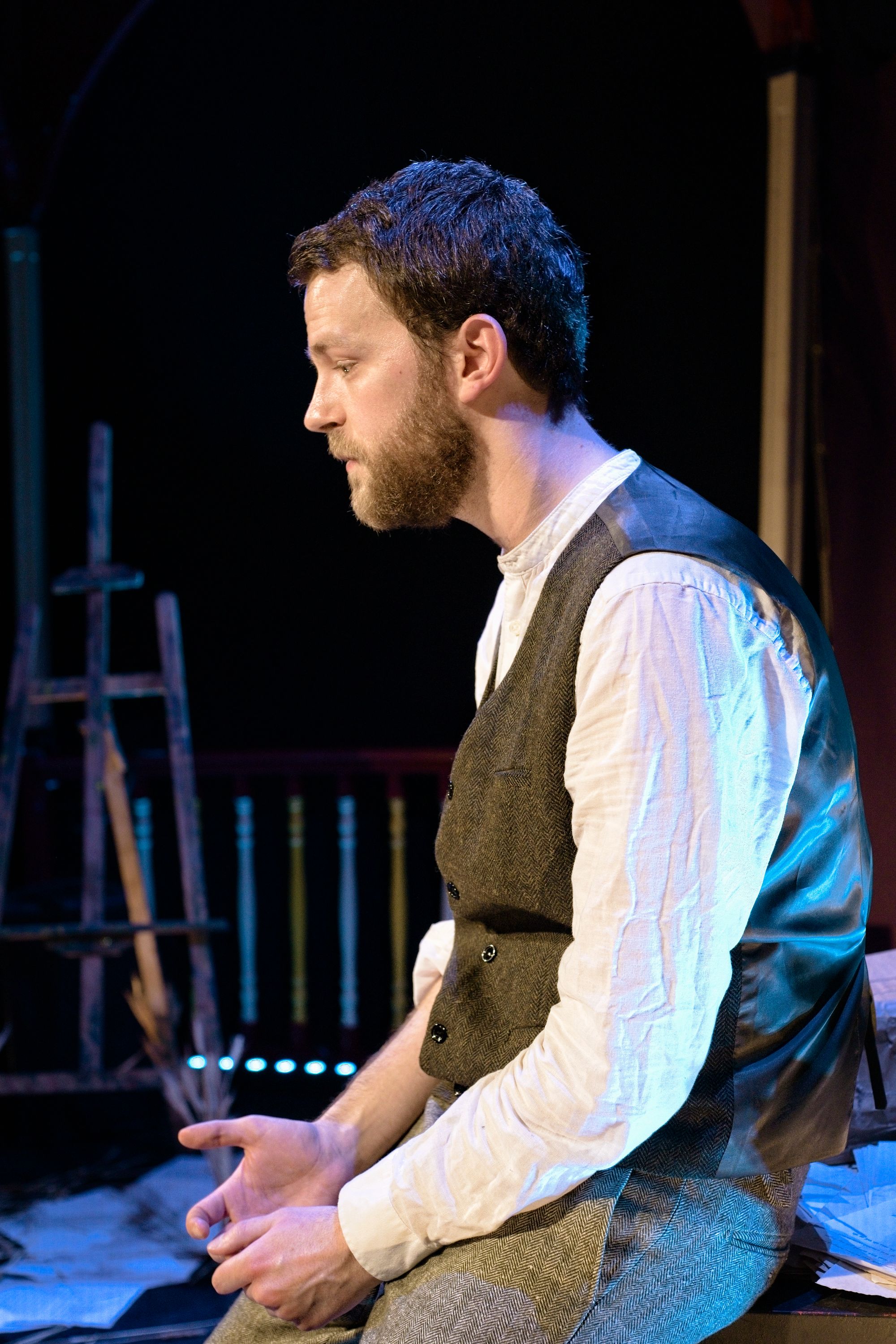
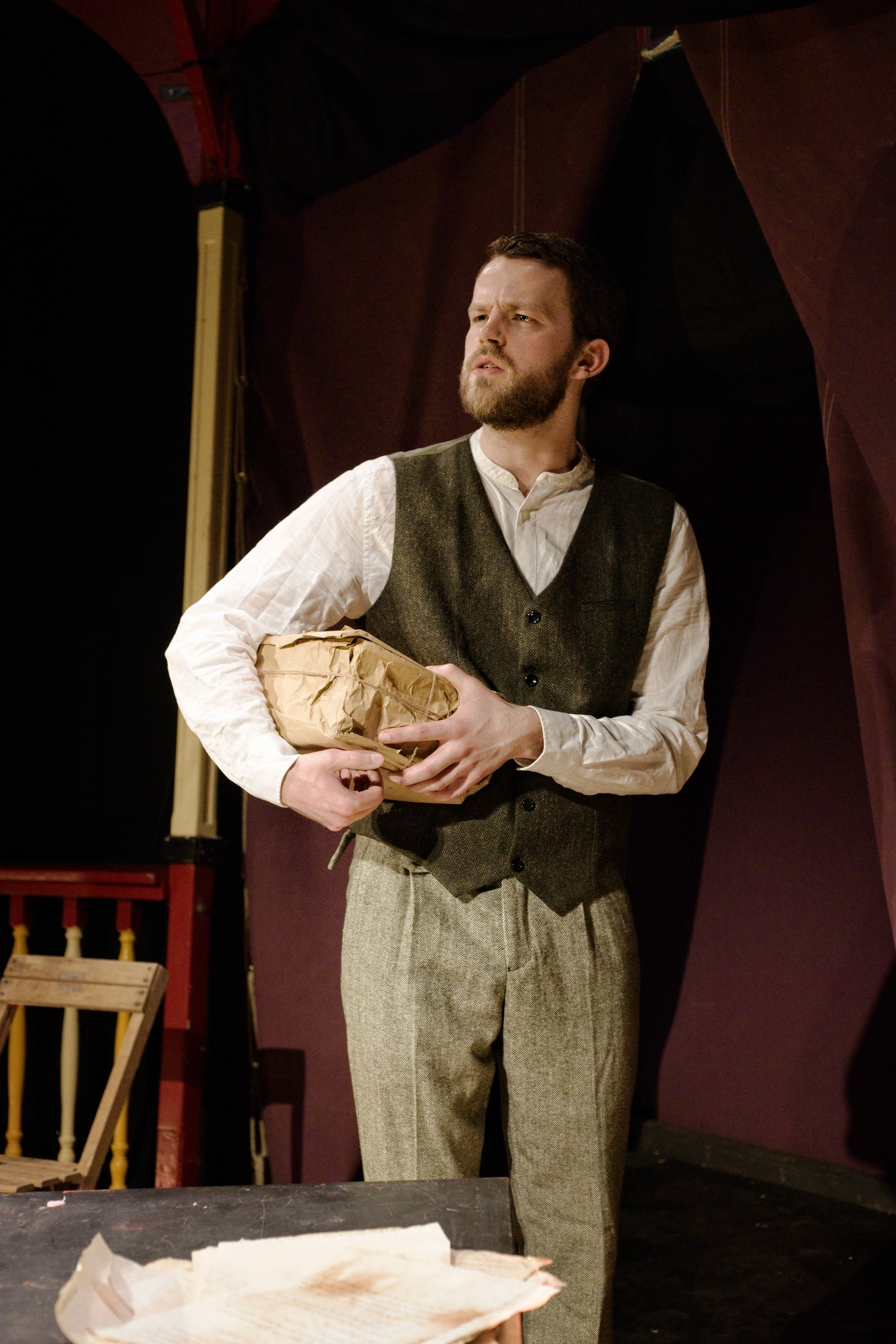
Source: Roxy van der Post
Roxy van der Post
3,2,1 Vulva Slam: Variety Show to Charge Your Vulva Power!
After arriving to a half-full audience in the already small basement room at the Walrus, I wasn’t hopeful about the charge of power I’d feel at the end of this show, advertised as a variety performance, but what was a succession of stand-up comedians.
Each comic became progressively more confident in their own material, but it is hard to describe this as little more than a rehearsal. Every performer had at least one relatable quip, but many of the jokes were awkward one-liners, and overall, it was disjointed. The host, Moni, was the most experienced and subsequently the most engaging, but her humour relied primarily on vagina jokes, which were met with polite chuckles as opposed to genuine laughter. Her introduction involved some audience participation and made a valid point about the lack of gender diversity in the crowd. She dubbed my friend and I the ‘Junior Vulvas’, and singled out the only man in the room, asking him if he ever ‘ate pussy’. When his answer was a resounding ‘Yes’, the hilarity of this revelation failed to land with my Gen Z friend and I.
Perhaps us Junior Vulvas were younger than the demographic this show was targeting, but the humour did feel old-fashioned. That’s not to say the jokes were bad, it’s more that our experience of dating, and the qualms we have with men our age, don’t really correlate with the mishaps discussed by the more mature ‘Vulvas’. Though their experiences are valid, it is perhaps a time for these jokes, about the lack of attention being paid to female pleasure, to gain some nuance to stay relevant, and be more than cheap shots at men.
Olivia Kelly
Billie Gold Presents: Praise Kink
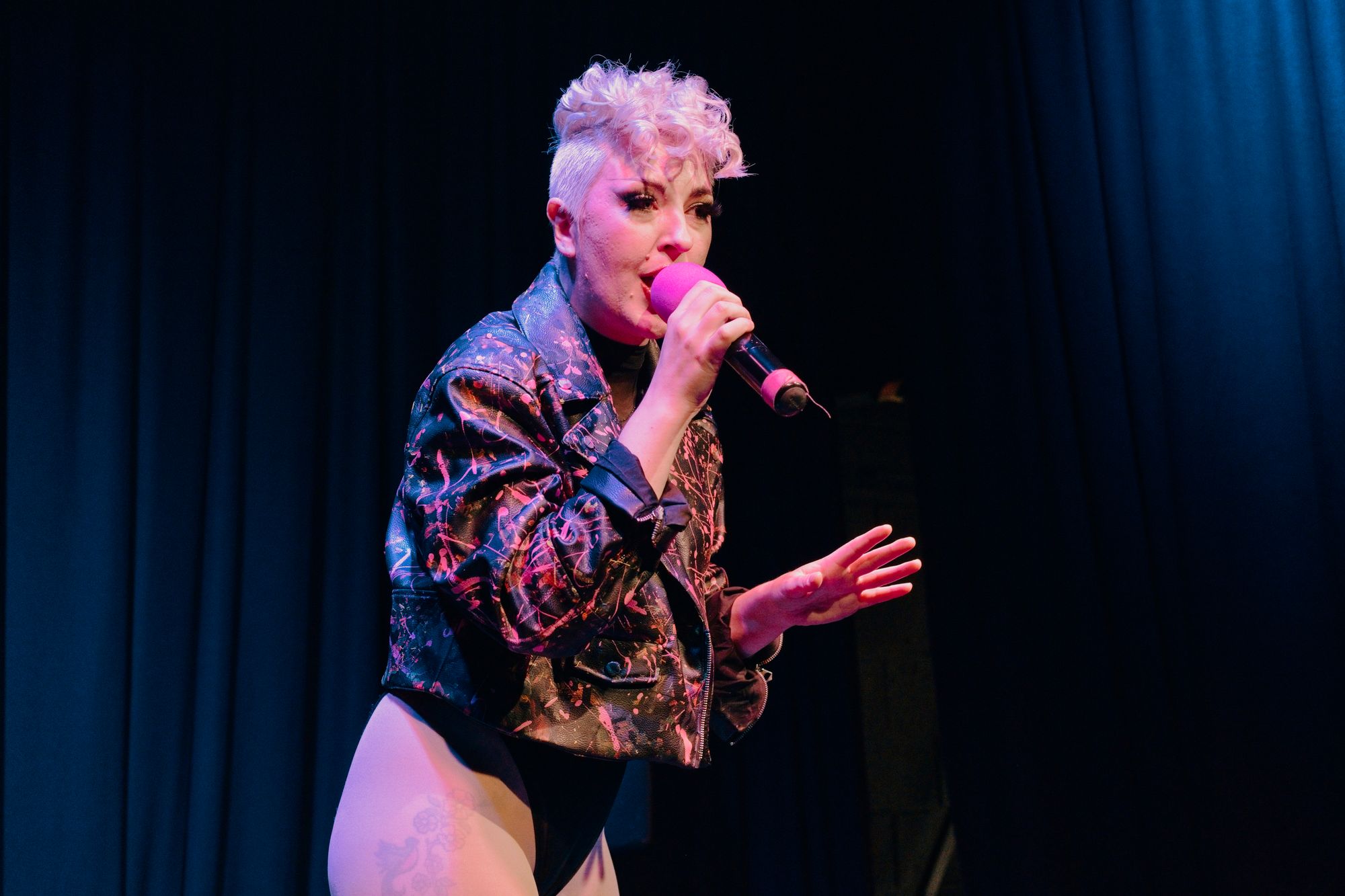
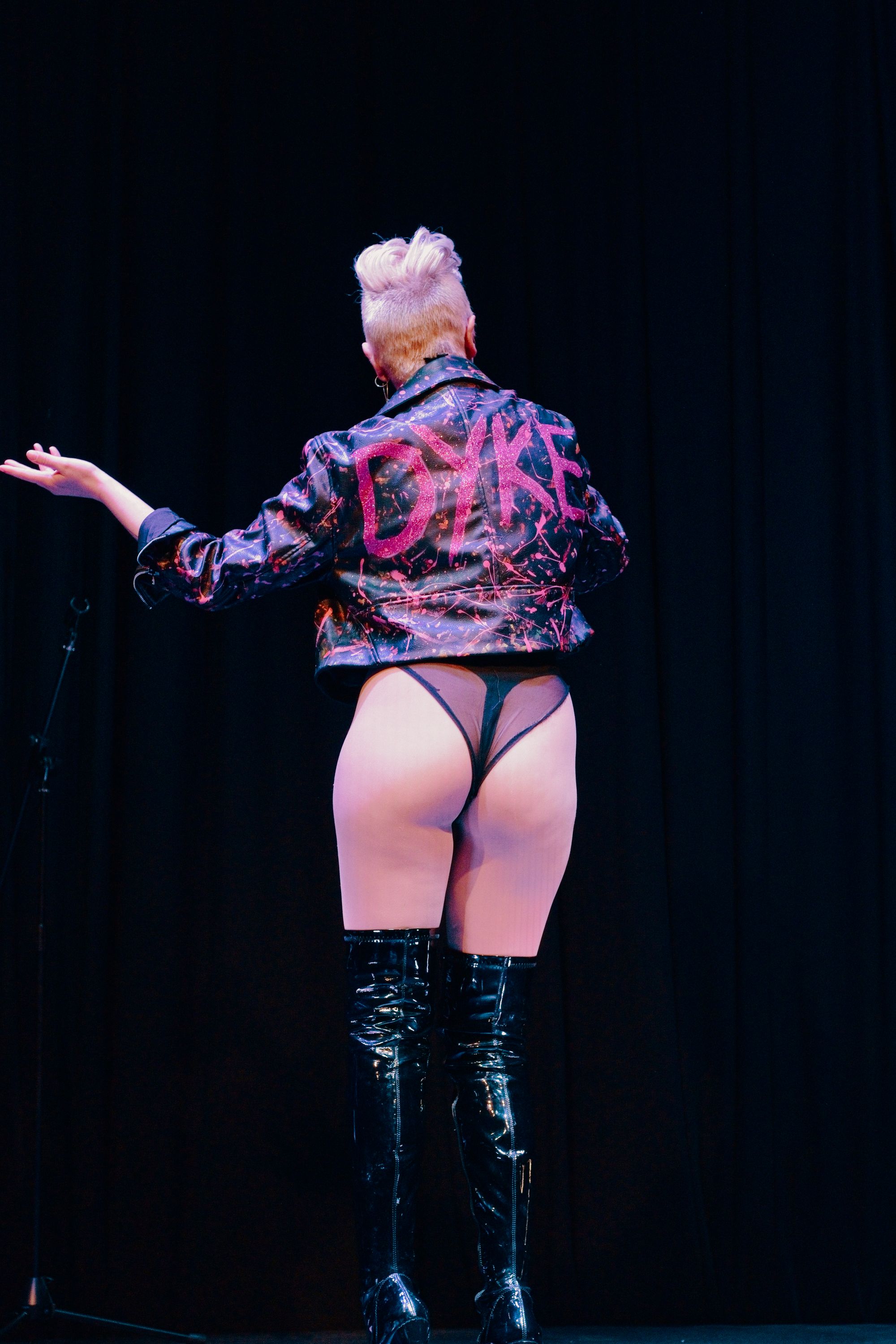
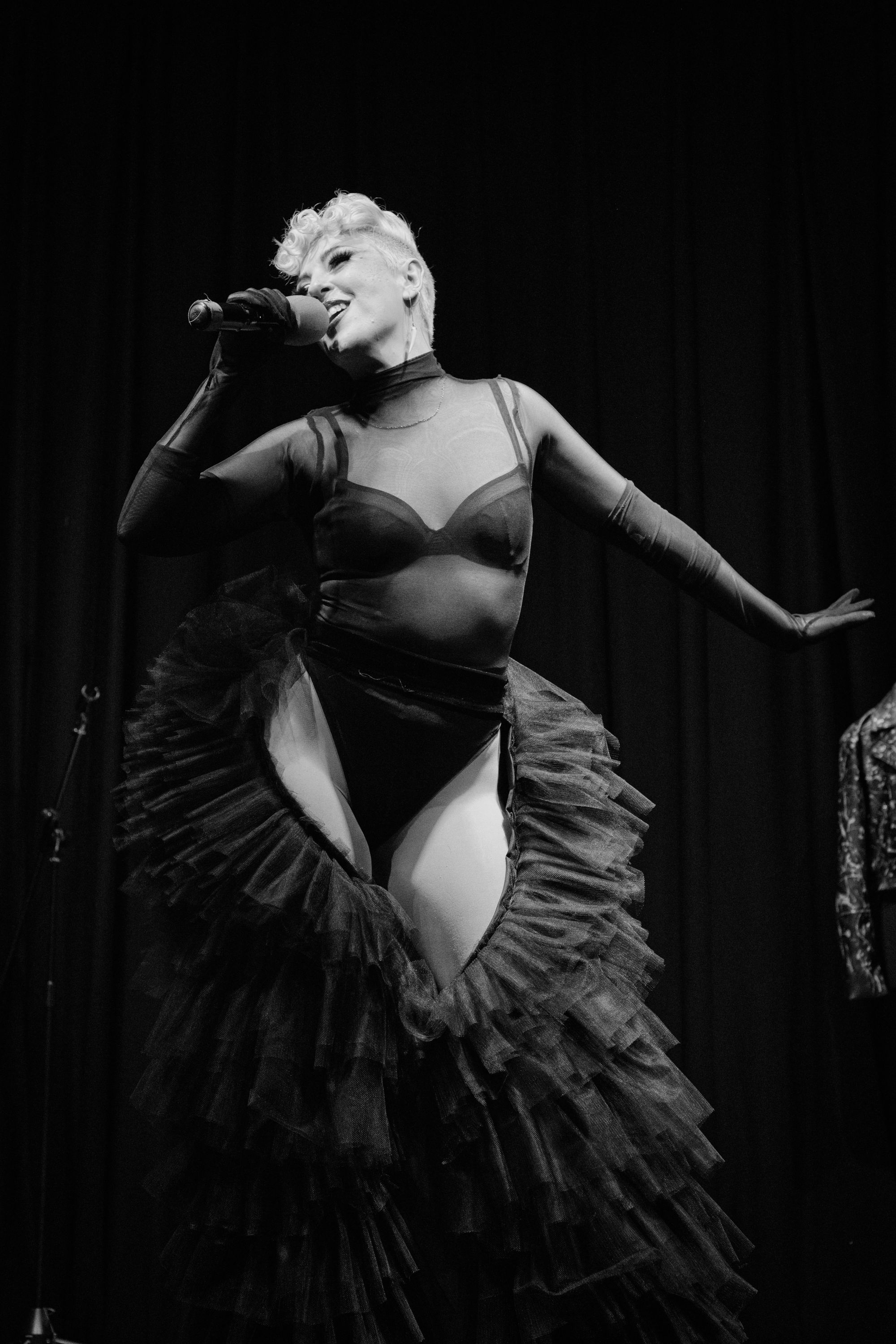
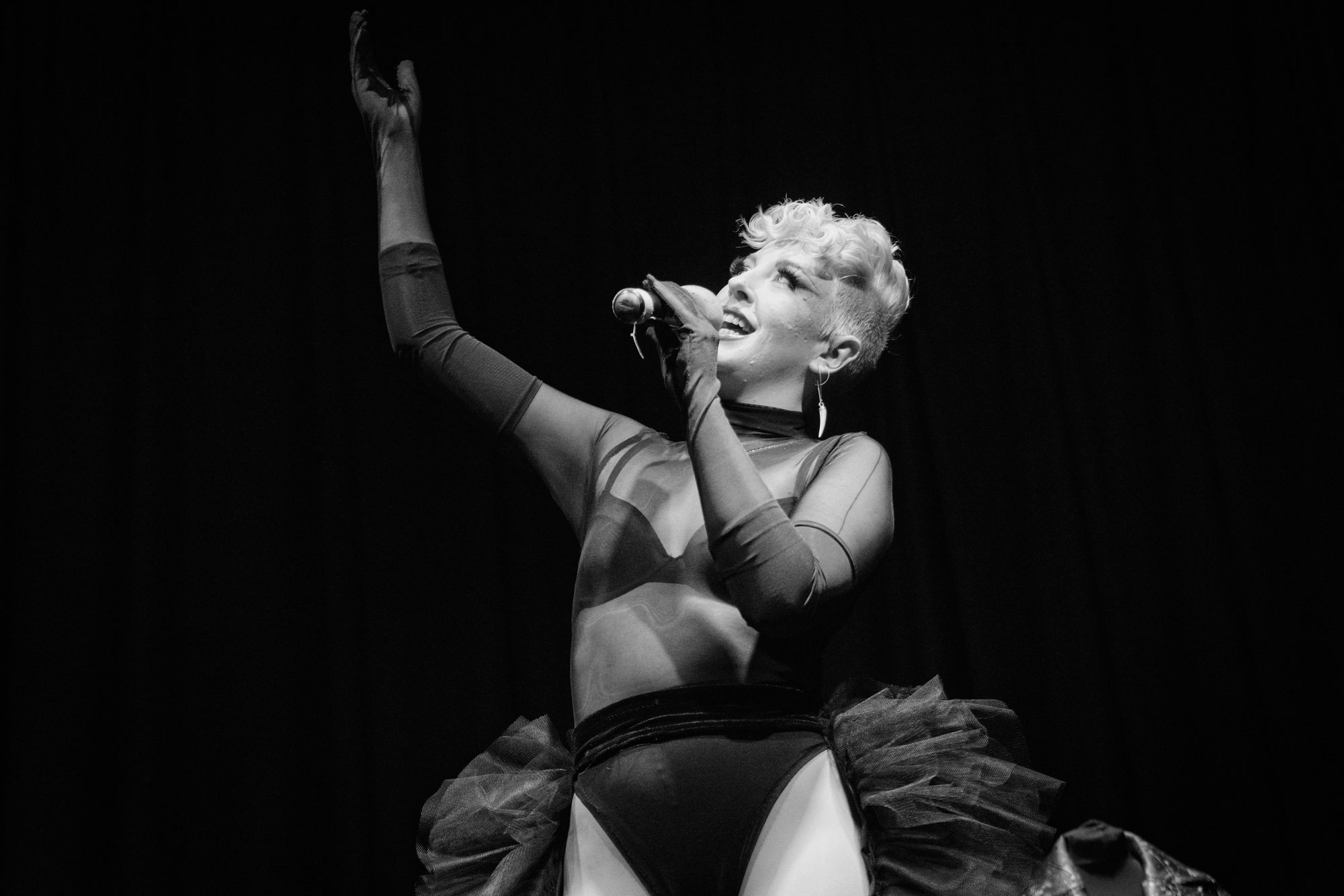
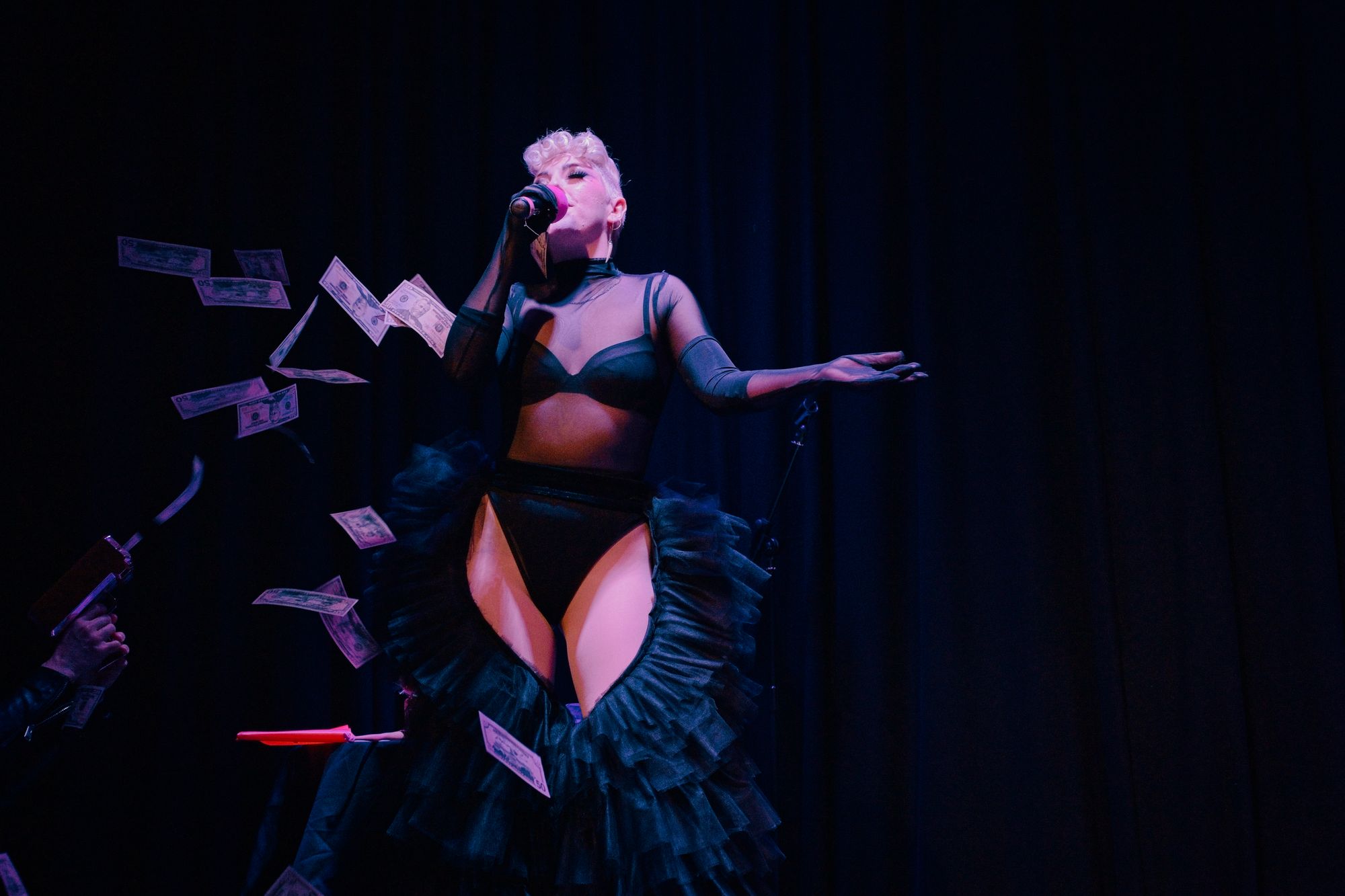
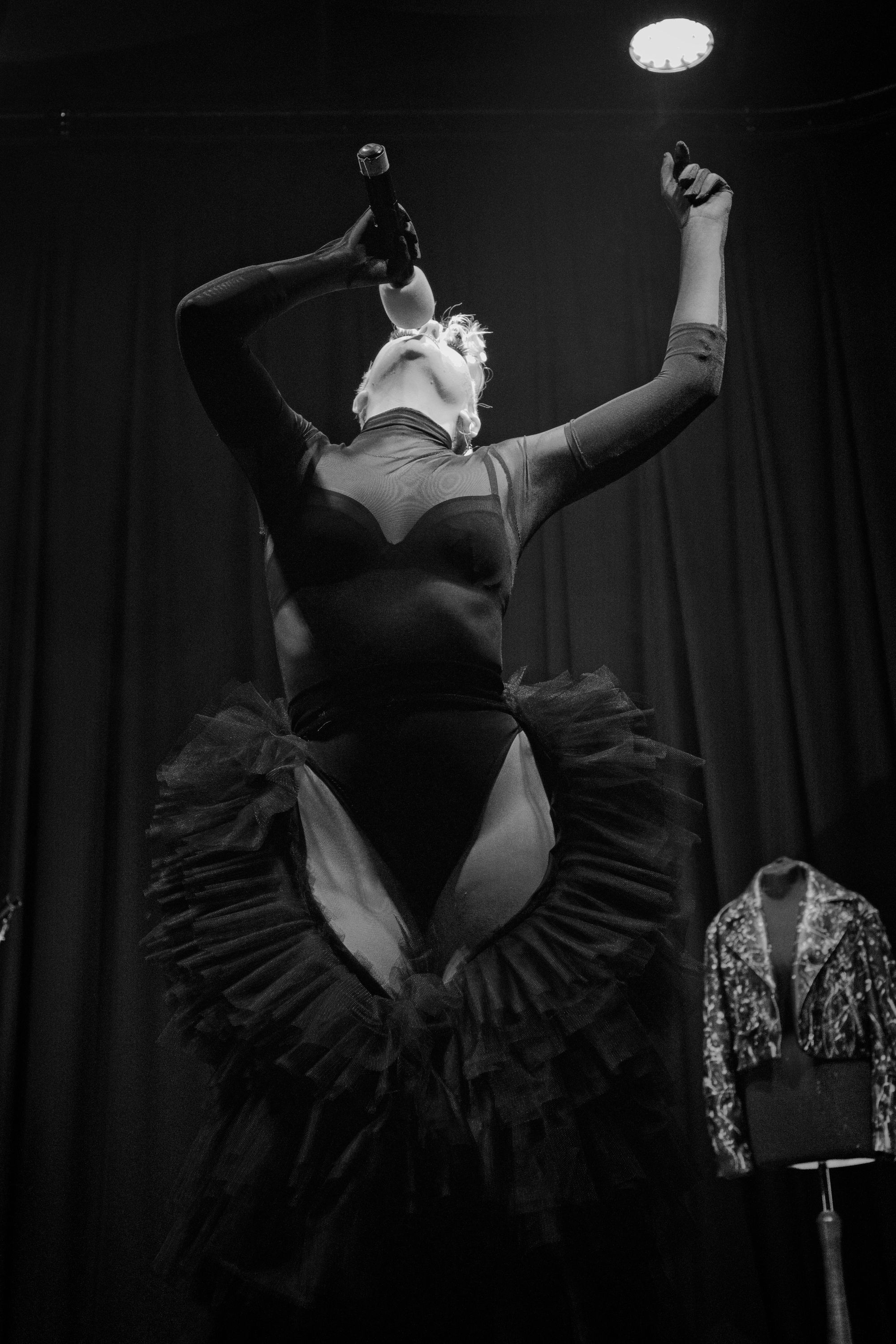
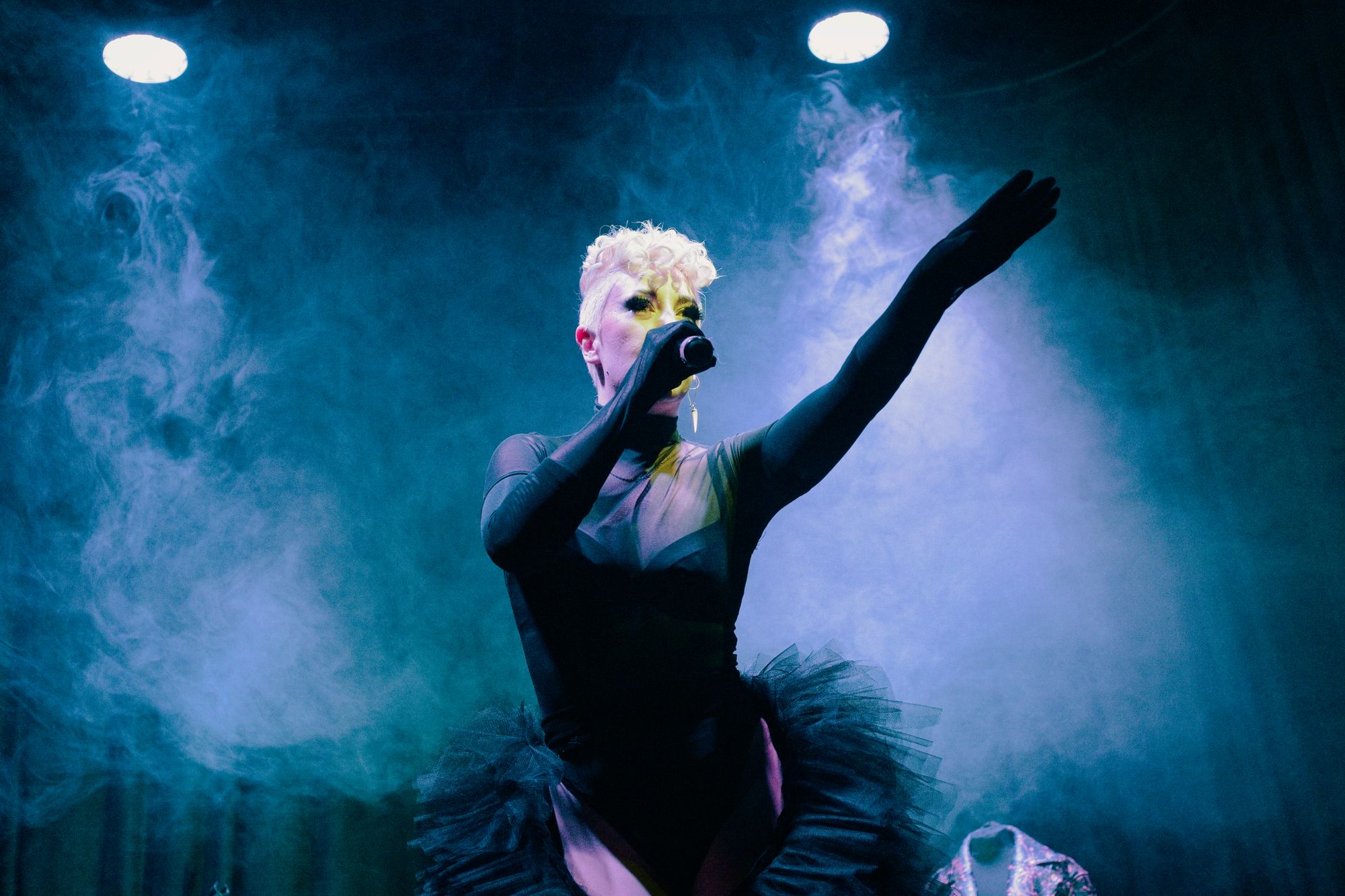
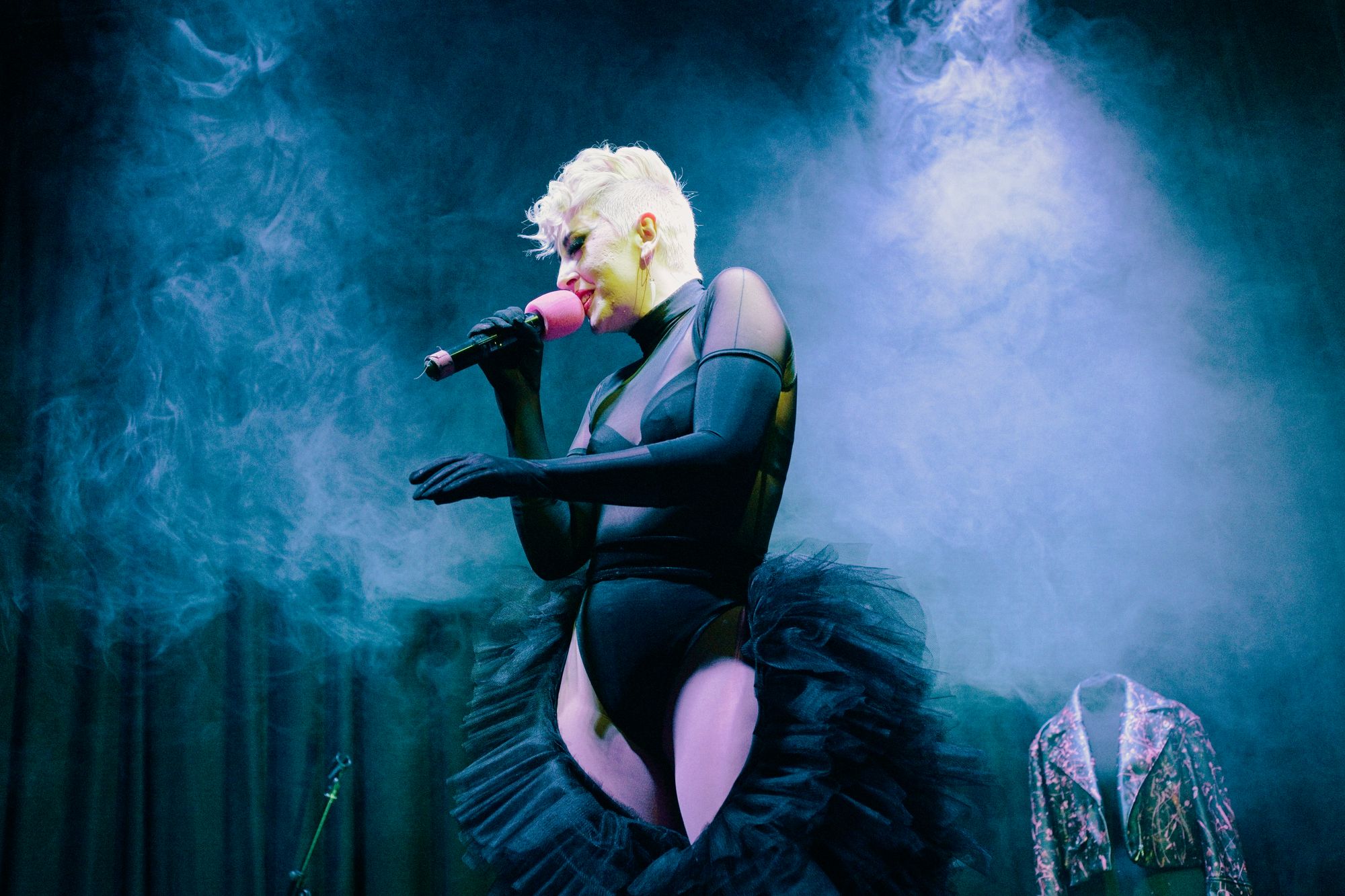
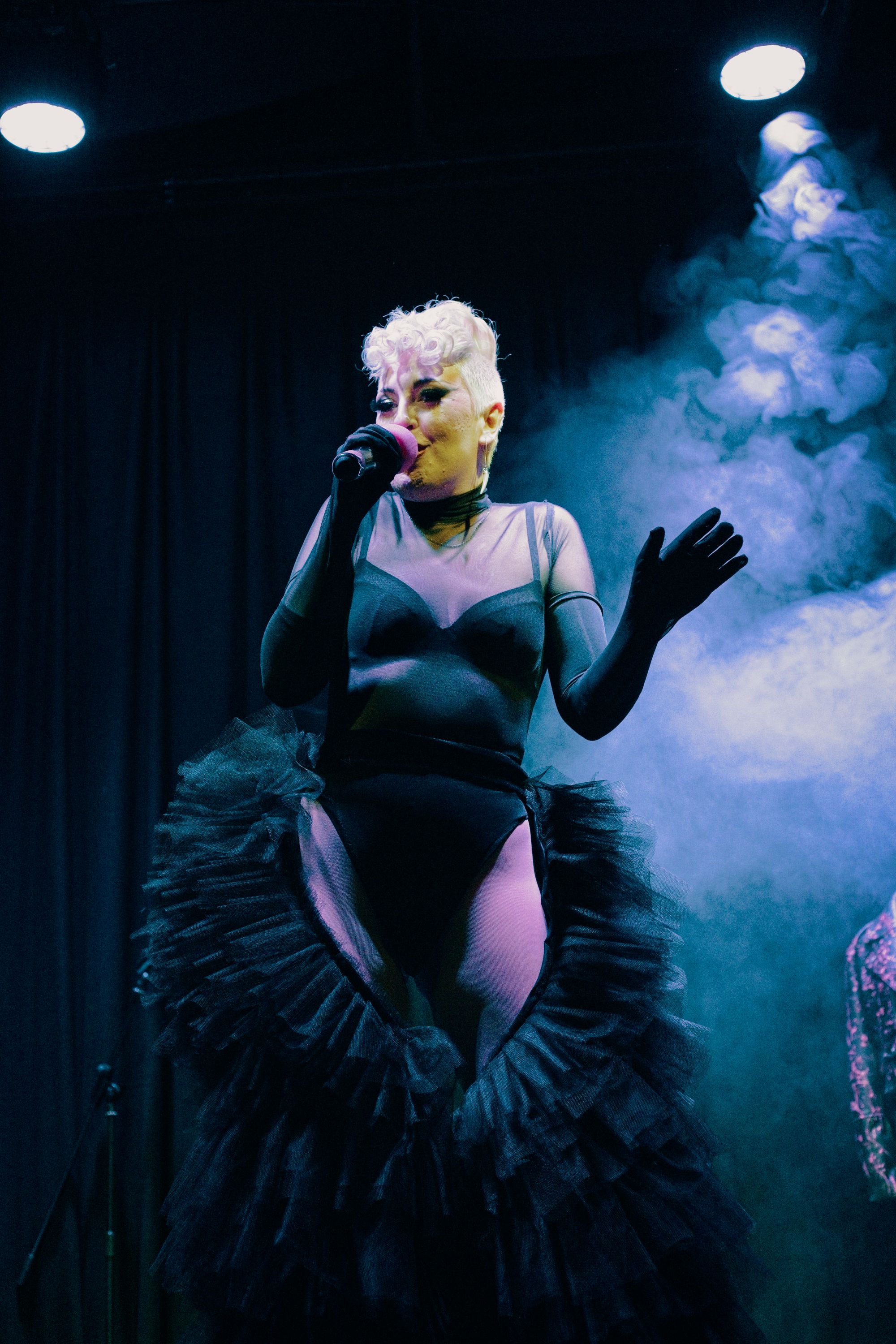
Source: Roxy van der Post
Roxy van der Post
Lost, Anxious, In your Twenties?
Having never attended a one-person show before, I wasn’t entirely sure what to expect from Anya, a 26-year-old who is evidently lost, anxious, and in her twenties. Nevertheless, as I fit with all the above descriptors myself, I was intrigued to see if hearing about someone else’s struggles could ease the burden of my own, even if it was just for an hour.
Performed under an intense spotlight on the intimate first floor of Presuming Ed’s, Anya’s combination of spoken word and stand-up was, in fact, mesmerising. Her diary-entry style recital delves into a range of uniquely personal qualms, like her confidence crumbling when she realises her friends see her newly purchased, slightly scruffy second-hand car as ‘on brand’ for her, to more existential concerns about the challenges our generation will have to grapple with in the face of climate change.
The show is understated, with minimal movement, which she usually does to differentiate between each entry, and her attire and stage set-up is modest. However, this only makes her words more impactful. I felt emotional several times, particularly when she described losing a close family member just before Covid and spending weeks of lockdown contemplating what they’d make of the new reality if they were still around, which is something which my family experienced.
In the introduction, Anya explains that when she was a child, she wanted to be an actor, and couldn’t imagine another path for herself, but as she’s grown up, she’s realised that the competition and constant rejection involved would be too much for her ‘highly sensitive’ self to endure. However, the range of emotions she was able to portray in her performance was highly evocative, and I’d jump at the chance to see her perform again.
Olivia Kelly


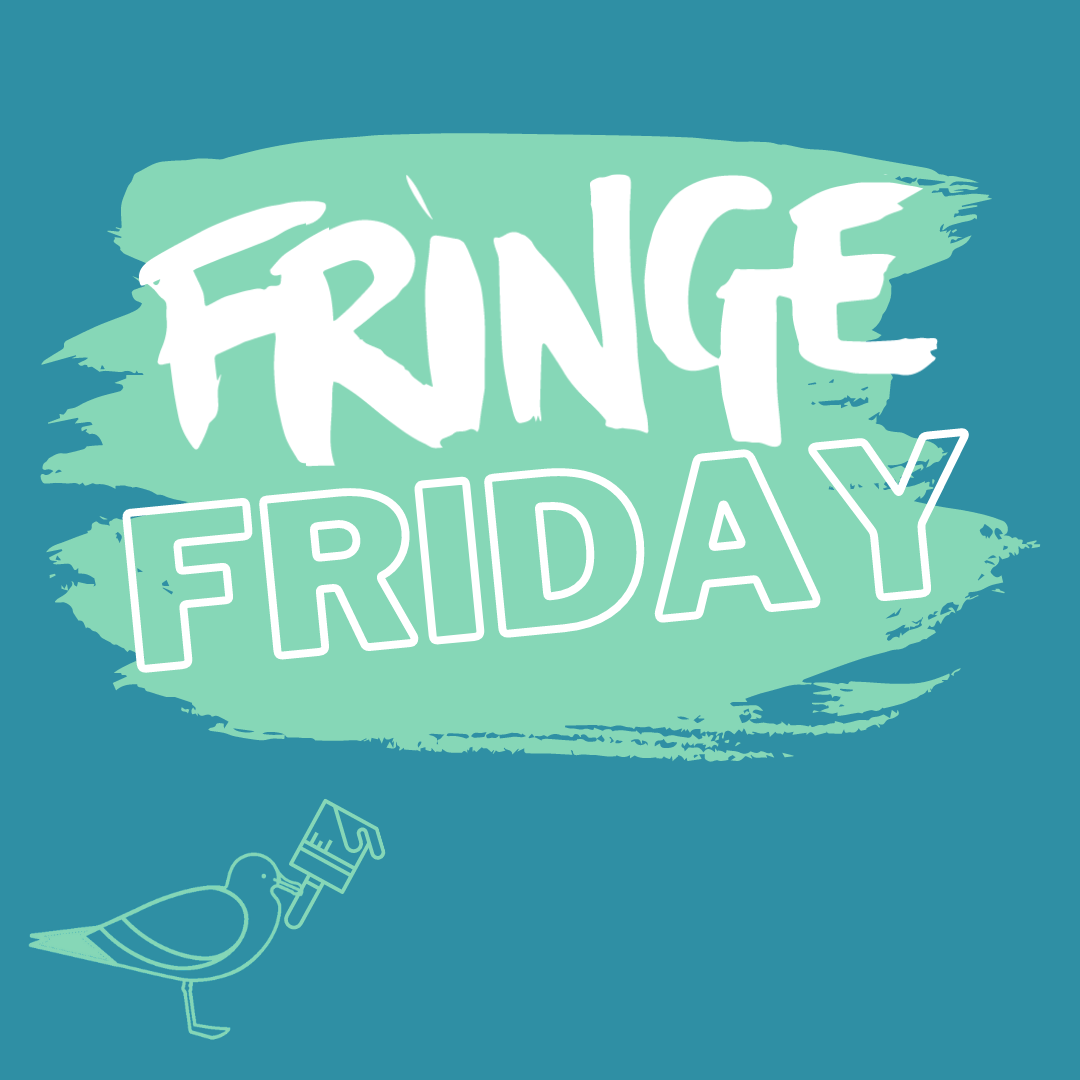


Comments ()